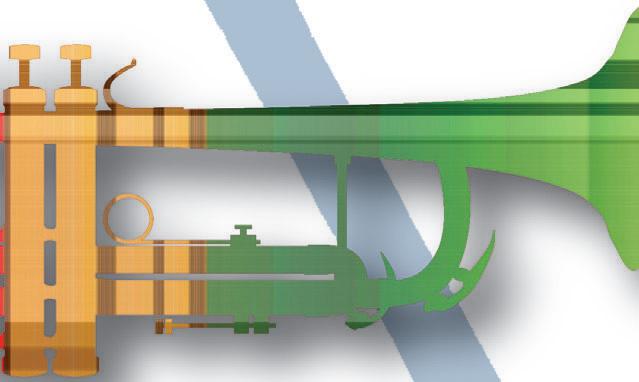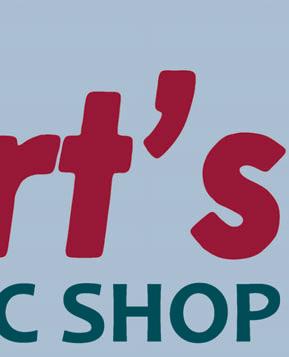
2023 AUDITIONS FOR ADMISSION AND SCHOLARSHIP APPLICATIONSgo.uab.edu/music DEPARTMENT OF MUSIC











2023 AUDITIONS FOR ADMISSION AND SCHOLARSHIP APPLICATIONSgo.uab.edu/music DEPARTMENT OF MUSIC










(800)681-4188 www.
Fiesta-val Music Festivals • Heritage Festivals

(205) 458-0086 IATAN

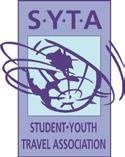
Landmark Tour & Travel’s Music Festival Division has more than twenty years experience planning student tours. Landmark’s team of expert travel professionals can customize your tour to any major choral or instrumental festival at any location that you choose.


Choice Music Festivals • Cruise Festivals • Festival Disney Festivals of Music • Field Studies Carnegie Hall Performance




Manhattan Concert Productions • MidAmerica Productions Music in the Parks • OrlandoFest • Music USA Orlando Southern Star Music Festival . . . AND MORE

Atlanta, GA • Branson, MO • Chicago, IL • Gatlinburg, TN New Orleans, LA • New York, NY • Orlando, FL Saint Louis, MO • San Antonio, TX • Toronto, ON Washington, DC • Williamsburg, VA . . . AND MORE Sample itineraries are available for each destination. If the festival or destination of your choice is not listed, call for a custom proposal.

Contact SarahMartha Parker at (205) 458-0086 or sarahmartha@travellandmark.com to begin planning your tour today!


President Dr. Rob Lyda
Cary Woods Elementary School
715 Sanders Street Auburn, AL 36830 334-663-0898 president@myamea.org
Immediate Past President
David Raney
Sparkman High School
2616 Jeff Road Harvest, AL 35749 256-837-0331 draney@madison.k12.al.us
President, AOA Joseph Lee PO Box 2532 Huntsville, AL 35804 (615) 397-4490 aoa_president@myamea.org
President, AMEA Collegiate Sarah Hicks (678) 986-1885 sehicks3@crimson.ua.edu
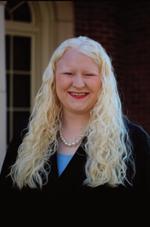


Industry Representative
Joey Harbison
Gadsden Music Company
607 Broad Street PO Box 132
Gadsden, AL 35901 205-910-2622
jmharbison@aol.com
Executive Director

Dr. Russell (Rusty) Logan
2020 Janabrooke Lane Auburn, AL 36830 (334) 663-1702
executive_director@myamea.org
Garry Taylor, Editor & Advertising Manager 1600 Manor Dr NE Cullman, AL 35055 (256) 636-2754 editor@myamea.org
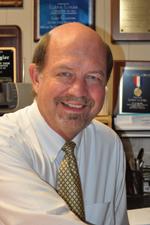


President-Elect
Dr. Phil Wilson Ogletree Elementary School

737 Ogletree Road Auburn, AL 36830 (334) 538-9679
president_elect@myamea.org
Recording Secretary
Heather Holmes
Oak Mountain Middle School 5650 Cahaba Valley Road
Birmingham AL 35242 (205) 682-5210 recording_secretary@myamea.org
President, AVA
Hilen Wilson
6315 Mary Harmon Bryant Drive Cottondale, AL 35453 (205) 454-3067
ava_president@myamea.org
Treasurer/Registrar
Pat Stegall
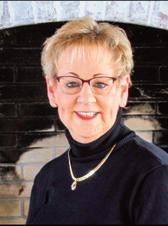
AMEA Registration PO Box 3385
Muscle Shoals, AL 35661
treasurer_registrar@myamea.org
President, ABA
Lori Hart
Guntersville High School 14227 US 431 Guntersville, AL 35976 (334) 797-1778
lorihart@gcboe.net
President, ELEM/GEN
Alicia Luttrell Old Shell Road School 3160 Heather St. Mobile, AL 36607 (251) 221-1557
aluttrell@mcpss.com
President, HED Division
AMEA Collegiate Advisor
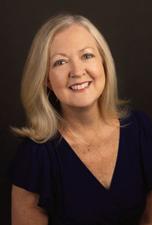
Dr. Meghan Merciers University of North Alabama UNA Box 5040 142 Music Building Florence, AL 35632-0001 (256) 765-4518 mmerciers@una.edu
Editor, Ala Breve
Garry Taylor 1600 Manor Dr NE Cullman, AL 35055 (256) 636-2754


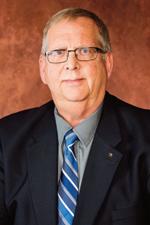


editor@myamea.org
ADVERTISING & COPY DEADLINES
Fall - August/September (Back to School issue): July 15
Winter - October/November (Conference issue): September 15
Spring - May/June (All-State issue:) January 15
Summer - May/June (Digital Only issue:) April 15
Dr. Carly Johnson

Alabama State University
Department of Music 915 S. Jackson Street Montgomery, AL. 36104 (334) 229-4341
cjjohnson@alasu.edu
Alabama Department of Education Arts Education Specialist Andy Meadows 50 North Ripley Street Montgomery, Alabama 36104 (334) 694-4768
ameadows@ALSDE.edu
Unless otherwise indicated, permission is granted to NAfME members to reprint articles for educational purposes. Opinions expressed in this publication are not necessarily those of AMEA or the Editor. All announcements & submissions are subject to editorial judgement/revision.The Alabama Music Educators Association is a state unit of NAfME: The National Association for Music Education, a voluntary, nonprofit organization representing all phases of music education in schools, colleges, universities, and teacher-education institutions. Active NAfME/AMEA membership is open to all persons engaged in music teaching or other music education work.
Ala Breve is published four times a year (August, October, February & May) by the Alabama Music Educators Association and printed by Hardwick and Son Printing in Dothan, Alabama. Bulk rate postage paid at Dothan, Alabama.
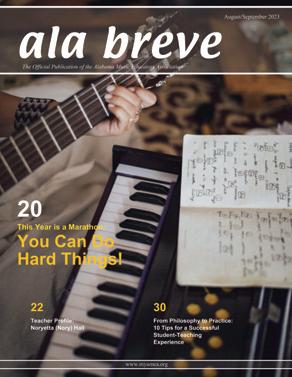
Concert Band
Jazz Band Orchestra

Percussion Ensemble
Guitar Ensemble
Parade/Marching Band
Steel Band, Concert Choir
Show Choir

Dance Groups
1-Day Park-to-Park Universal Orlando® Resort Ticket with Festival (Florida schools only)

$232 + tax
2-Park | 2-Day Park-to-Park Universal Orlando® Ticket with Festival $265 + tax
2-Park | 3-Day Park-to-Park Universal Orlando® Ticket with Festival $275+ tax
3-Park | 2-Day Park-to-Park Universal Orlando® Ticket with Festival (Universal Studios, Islands of Adventure and Volcano Bay all 3 days)
3-Park | 3-Day Park-to-Park Universal Orlando® Ticket with Festival (Universal Studios,
$285 + tax
Registration Fee(s)
In addition to the per-person price listed above, each performing group requires a registration fee of $150. The registration fee(s) is/are non-refundable upon acceptance of your school for the participation in the Music USA Festivals program.

Minimum Requirements
$295 + tax
Each school must have at least 40 performing students. For each additional performance group, another 40 performance students are required. *The breakdown of students within each performing group does not a昀ect the requirement. *One Director/Chaperone free for every 20 paid students.
Music USA Festivals has provided groups with the unique opportunity to perform at Universal Orlando® Resort since 1992. Schools arrive, perform and are admitted directly to the park from Soundstage 33, making for the ultimate festival experience!
MARCH
March 15-16
March 22-23
March 29-30
(Easter, no festival this weekend)
www.MusicUSAFestivals.org

APRIL
April 5-6
April 12-13
April 19-20
April 26-27
MAY
May 3-4
May 10-11
May 17-18
May 24-25
Islands of Adventure and Volcano Bay all 3 days)
One of the many things I love about being a member of AMEA and NAfME is that I am surrounded by passionate people. I’m not sure any other profession or any other subject in education allows students and teachers to work towards a common goal where everyone participates. Sure, in a math or English classroom students learn together, but they are evaluated on how well they individually perform. The music classroom is different. The music classroom is a magical place where collaborative performance, creation, response, and connection are birthed every day. I view my classroom as an incubator where students are constantly growing and developing new knowledge and skills.
I honestly think music teachers are special and unique in the education ecosystem. Could you imagine if other classes were taught like music or if other content areas were expected to attain the same level of success? In other subject areas, mastery is measured on a scale from 70-100%. I can’t imagine going to a concert or seeing a music teacher give any less than their best. We are accustomed to giving and expecting from our students 100% each time.
I’ve had the privilege to rack up a few frequent flyer miles this summer as I’ve traveled around the country working with music teachers. I’ve seen the same passion in music educators across the country. I’ve also noticed some of the same ills impacting music teachers and their programs as the ones I’ve observed in Alabama. Lack of resources, funding issues, scheduling problems, substitute shortages, feelings of lack of respect for teachers and their programs, and lack of qualified music teachers to fill all the vacancies this summer are common ills in all parts of the country.
I’ve thought a lot about perspective this summer. As I’ve looked out of plane windows and observed the landscape in miniature - I’ve thought about refocusing our perspective. What are the things we need to look at from 10,000 feet? What are
the things we can control? What are the things that are worth fighting? Are we on an island or are we dealing with issues that are universal throughout education? What can we do as a profession to make everyone’s job and programs better? How can I help? These are just a few of the questions I‘ve asked myself as I’ve tried to gain and shift my perspective.
I can’t remember a time in my 23 years of teaching when anything about teaching was perfect. How many of you remember proration of the early 2000s or the great recession? I remember having to bring my own toilet paper to school. I will always be thankful to Steve McLendon for fighting and advocating for me when my school system decided to do away with summer employment and told me I wouldn’t get paid in October after I had already worked during the summer. I can’t remember a time during my teaching career when there weren’t ills, of some kind, that we all had to overcome. There have always been problems. We can’t let the problems consume us and force us into a vicious cycle of self-doubt and self-loathing that steals our passion.
Please don’t think I’m trying to minimize any of your problems. No one should teach in dangerous or unhealthy conditions. Teaching the past few years has been challenging. I will admit to you that the hardest years of my career happened during the pandemic. Many of us are still trying to recover from the ills of the pandemic. The pandemic gave us a natural time to refocus and examine our perspective. However, I’m afraid that too many people in education are ready to recreate the days before the pandemic. I’m not so sure that we remember the teaching conditions of yesteryear accurately.
We invest every fiber of our being into our programs and our students. Often, neglecting ourselves and sometimes even our family. Looking back on my career, the ills are the times when I learned to be a teacher. Our ills offer us two choices – give in to negativity or figure out how to make it happen.
Let me be the first to give you some encouragement this school year – I’m proud of you. I’m honored that you show up every day and work to provide your students with the best music education possible. I know there are days when you are tired when you don’t know how to keep going, and you ask yourself if all of this is worth it. Guess what…it is worth it. You are worth it. Your students are worth it. You do great work and are a light in the dark night for many of your students. Please never forget that you matter. We all have bad days and on the worst of those days, I want you to remember that you are doing incredibly important work. You bring joy, give hope, and make music with other human beings. We couldn’t do this without you.
Summer and breaks are important for us to recharge, reevaluate, and rest. I hope this summer was full of rest for you, your family, and your students. Please don’t ever hesitate to contact me if you need help. I will help you think through shifting your perspective or give you a pep talk. I will listen. I am here to help you; I know others are willing to help too. Please don’t feel alone this year. Connect with other members of AMEA, meet for dinner or coffee, and share your successes and worries. You don’t have to do this alone.
This summer was incredibly busy for AMEA. The Governing Board has worked to plan conference, launch new initiatives, and discuss how we can better serve our members. I will discuss a few items of importance in the next few paragraphs.
 Ala Breve
Ala Breve
Welcome to the first digital issue of the 2023-2024 school year. Due to the cost of printing and mailing the Ala Breve, the Governing Board decided to offer three digital issues and one print issue this school year. The new digital format will allow for an interactive reading experience supported by new graphics, videos, and sound capabilities. We hope you enjoy this new format. At the end of this school year, we will evaluate the delivery format of the Ala Breve for the next school year.
We want to thank Dr. Carl Hancock for his years of dedicated service to AMEA as Media Specialist. The Governing Board realizes that Dr. Hancock’s shoes will be hard to fill! In the coming months, we will form a social media committee to create and publish content to AMEA’s social media pages. Specifically, we are looking for people that have strong social media publishing skills that can help us connect with our members and broaden our reach. We will publish a call for interested AMEA members in late August. Watch the AMEA newsletter and social media channels for more information.
We were fortunate that Garry Taylor continued to serve AMEA as assistant executive director last school year. The Governing Board will be publishing a call for interested members to apply for Assistant Executive Director for this school year. Please watch your email and AMEA’s social media channels for the call in August.

Each year NAfME is required to gather all State MEA Presidents, members of NAfME’s National Executive Board, and the Chairs of NAfME’s Societies and Councils to discuss the business of the Association. This year NAfME also brought back the Hill Day experience to allow us to meet and advocate for music
education with our elected officials. Southern Division NAfME President-elect Susan Smith, cNAfME officers Sarah Hicks and Matthew Suit, and I met with staff members in both Senate offices, three Representatives’ offices, and with Rep. Terri Sewell.
I’m pleased to report that all our meetings were positive. However, our work isn’t done. The FY24 Budget is currently going through the appropriations process. The House budget is seeking to cut education spending to pre-2006 numbers. The Senate is still in the process of appropriations markup. We need every one of you and your supporters to contact our elected officials. We need to advocate for continuing to fund the FY24 education budget, at least, at current funding levels.
The draconian cuts proposed by the House would slash an average of four teaching units from each Title I school. Many of the state’s music teaching positions are funded through Title I funds. Please call, email, or use NAfME’s grassroots advocacy center to let your voice be heard. Many of our elected officials will be in Alabama during the August Congressional recess. It might be a good idea to schedule a meeting with your elected officials.
The simplest advocacy tool you can use is social media. Please continue to share about your programs using #ala4musiced.
CMA and NAfME State Advocacy Grant AMEA was one of only three state MEAs
selected to receive a $4,000.00 grant to be used for advocacy activities during the 2023-2024 school year. The focus of this grant will be on mentoring music teachers in their first five years of teaching, providing scholarships for cNAfME students enrolled in HBCUs to attend the AMEA Professional Development Conference, supporting first-year music educators to attend the AMEA Professional Development Conference and leadership training for AMEA’s 2024 Hill Day. More information will be distributed in the coming weeks about these programs. Thank you to Dr. Diane Orlofsky and Dr. Phil Wilson for writing the grant with me and for their leadership with our mentoring and emerging leader programs. One way you could help us be more successful is by helping us connect with new music teachers in your area. If you know of a new teacher in need of a mentor, please contact Dr. Orlofsky (dorlof@troy.edu), Dr. Wilson (prwilson1898@gmail.com), or myself (lydarob@me.com) with their contact information. We want to do everything possible to support our new teachers.
I know many of you are fully engaged in back-to-school activities. I hope you will take time throughout this year to put things into perspective. If I can be of any help, please do not hesitate to contact me. I hope you focus on the joy of making music. I hope you have a fantastic school year. Welcome to another year of making music!
Adopted August 5, 2023
The Assistant Executive Director assists the Executive Director and the AMEA Governing Board in implementing policies, co ordinating programs, and supporting approved activities. The Assistant Executive Director also serves as a non-voting member of the AMEA Governing Board.
Responsibilities
● programs.
Aide and assist the Executive Director and Governing Board in planning and implementing professional development
● Oversee the creation and maintenance of the AMEA Conference app.
Assume the duties of the Executive Director in the case of disability or absence of the Executive Director.
● Manage the AMEA website, including creating and updating content, designing, and implementing new features, and
● ensuring that the site is secure, user-friendly, and accessible.

● media accounts.
Oversee the social media committee to develop and schedule appropriate content to publish to AMEA’s various social
● ence A/V, and other duties as assigned by the Executive Director. Stay up to date on best practices in website design.
Assist with the implementation of the AMEA Professional Development Conference, including registration, confer
● Create an annual budget for the AMEA website, and conference registration technology needs.
● Perform other duties as assigned by the Executive Director.
●
● Attend meetings of the AMEA Governing Board. Provide written reports as necessary.
Qualifications
Bachelor’s degree in music education, marketing, communications, journalism, or a related field.
● Minimum of 2 years of experience managing websites for a nonprofit organization, educational institution, or similar
● entity.
● Proficiency with website content management systems.
Strong writing and editing skills, with the ability to create compelling and accurate content for digital platforms.
● Experience with graphic design software.
● Ability to work independently, prioritize tasks, and meet deadlines.
● Excellent communication and interpersonal skills.
●
● Maintain membership in NAfME/AMEA.
Appointed by the AMEA Governing Board for a yearly term (July 1 – June 30), with an annual review for reappointment.
Compensation
Compensation shall be suggested by the Budget Committee with the approval of the AMEA Governing Board. Compensation will include salary, a percentage of yearly personal internet cost (percentage suggested by Budget Committee, approved by Board), and a one-time payment of $750.00 for conference registration duties. Legitimate personal expenses for the position should be itemized and presented for reimbursement.
Upon completion of a term of appointment, the outgoing Assistant Executive Director should plan to meet with his/her suc cessor to discuss the responsibilities of the position. All files and data pertaining to the position should be turned over at to the successor.
The application deadline is September 15, 2023. Interviews will be held during October and the position will begin November 1. Apply here.

Purpose
Adopted August 5, 2023
The Social Media Committee (SMC) is to produce and promote materials and resources to better showcase the activities of the Alabama Music Educators Association (AMEA). The SMC is responsible for using social media as a means to connect and engage members, grow the membership base, and advocate for music education in Alabama.
Responsibilities
1
Serve as the primary resource and outlet for public relations in AMEA.
2
Work with AMEA’s Assistant Executive Director to oversee and maintain AMEA’s social media pages.

3 programs (MIOSM), and publicity for the annual Professional Development Conference.
4
5
6
Create content to be published on AMEA’s social media pages to include membership recruitment, advocacy, yearly
Strategically highlight and publicize programs and events of AMEA.
Disseminate information to advocate for the value of music education in the lives of all people.
Ensure that all postings comply with licensing and copyright laws.
Term of Service
Appointed for a two-year term by the President. This term may be extended by the succeeding President.
The Social Media Committee is chaired by AMEA’s Assistant Executive Director. The committee is responsible to the AMEA Governing Board.
Prerequisite
Members of this committee must be members of NAfME/AMEA.
The application deadline is September 15, 2023. Applications will be reviewed September 16 - October 16 and committee members will be notified on October 23, 2023. Apply here.
Perform in the Rotunda of the State Capitol during the 2024 Legislative Session
A collaborative project of the Alabama State Department of Education, the Alabama Music Educators Association, and the Alabama Institute for Education in the Arts
=This performance opportunity is for public schools only.
=Performances will be in the Alabama State Capitol Rotunda. Space is limited. Ensembles should be no larger than 20-25 students.
=Recommended performance groups include small brass, woodwind, string, vocal, or guitar groups, such as trios, quartets, quintets, or small choirs.
=Each ensemble should plan to perform a minimum of 20 minutes.
=Electricity or amplification may not be used. Chairs or music stands will not be provided. Groups may bring their own stands and chairs if necessary. A piano will not be provided.
=Performances will take place on Thursdays of February and March during the 2024 Legislative Session. Groups should arrive by 11:00 AM at the Gordon Persons Building, warm-up, then proceed one block to the Capitol and perform at 12:00 PM.
=Performing schools will receive a stipend to offset the cost of a bus driver and mileage.
=The deadline to apply is November 1, 2023.
=Apply at https://www.jotform.com/build/212503983618964
Let me begin by saying how excited and honored I am to be representing the Alabama Bandmasters Association as your President. It is a responsibility that I do not take lightly. Over the next two years, it is my desire to provide our membership with new opportunities that will allow us to grow as professionals, develop new friendships, increase our leadership abilities, and recognize the importance that we each have in our students’ daily lives.

As we begin a new school year, I challenge you to find something positive to focus on each day. These are difficult times in the world of education. We have to find ways to lift each other up! There’s the well‐known pyramid scheme that we have all seen in different forms of business but think for a moment if we developed our own pyramid of helping one other director and then that director helped another…you see where this is going? We each find a way to be a positive influence no matter how big or small and before we know it we have
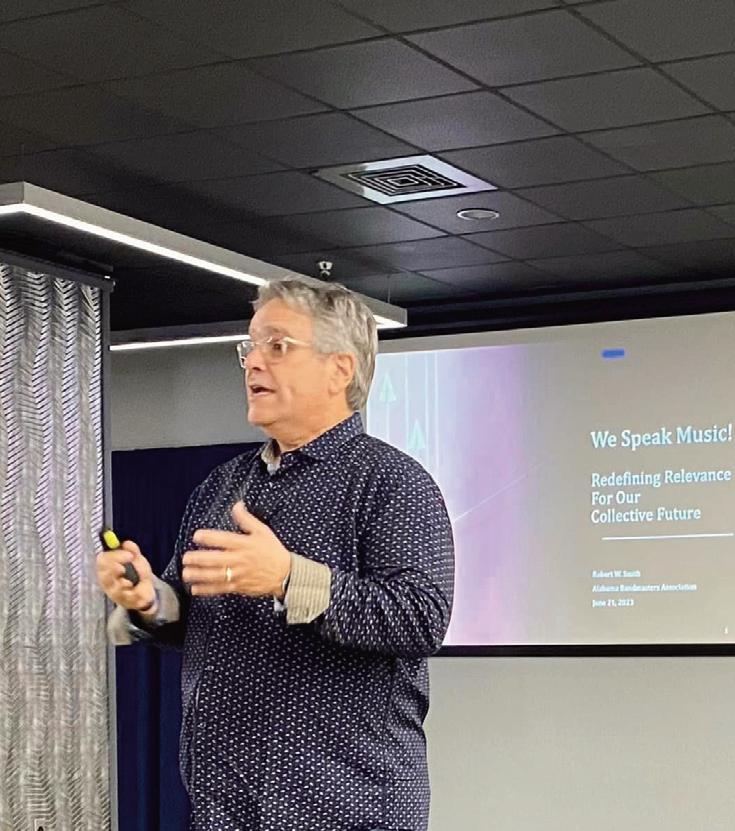
allowed our light to shine…It’s contagious! Instead of worrying about what the person down the road is doing, worry about the kid up the street that just started their career…Think about how you felt in those early days… someone helped you become better and I call on all of you to give back what you were given. Trust me, the return on investment is life‐changing!
We held the 2023 ABA Summer Conference at the beautiful Perdido Beach Resort and it was a great time of fellowship and development! Alabama native and world‐renowned composer, arranger, and teacher, Robert W. Smith, opened our conference with his keynote address about the responsibility we all have in the development of our students as future leaders. Many thanks to Gene Butler, Joshua Heicht, Samantha Malttagliati, Chris Moore, and Joel Henson for their outstanding clinics which brought about new thoughts and ideas.

Our Tuesday night Meet and Greet / Trivia Contest was a huge success and I
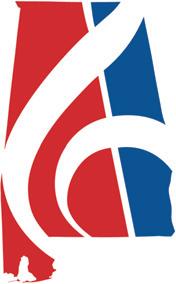


want to thank Chris Lindley with American Travel Consulting for hosting the fun‐filled event! Wednesday night’s Shrimp Boil Dinner had more participants than anticipated and we loved having the Doc Rogers and the Rock Dodgers Band provide live music! It was inspiring to see so many members of the band come from all walks of life and generations….it brought all that we discussed in our clinics full circle when you see the 80 plus year‐old piano player use her walker as her piano bench! Priceless! What we do is important because we teach lifelong musicians!
The board adopted new comment sheets for the back of our MPA adjudication sheets, as well as increasing the pay scale of our MPA Adjudicators so that we are more closely aligned with other states’ pay scales. The Music Selection committee is looking at new music to add to our Cumulative lists and the updated list will be published on August 1st, along with the 2024 All‐State requirements. Look for all of these on our website.
The board voted to take a one‐year suspension of the Summer Conference, to look at the financial feasibility of this event. The rising costs of hotel, food, and other items related to conferences have become astronomical in relation to the number of participants. The board feels it is our responsibility to be good


stewards of the ABA finances, so we will take a year to look into other venues and opportunities for future conferences.
Lastly, we will partner with members of Phi Beta Mu in the development of a new teacher mentorship. I am afraid, as of this writing, we may have more teaching jobs open than we have teachers to fill them. We must nurture and mentor our young directors so that we can always fill the positions within our state. We need more band programs, not less! More information regarding this will be forthcoming.
In closing, my sincere thanks to our ABA Board and our outstanding sponsors for their longstanding support of the Alabama Bandmasters Association: Art’s Music Shop, Inc, AWB Apparel, Best in Class Tours, Custom Fundraising Solutions, Fruhauf Uniforms, Inc., Guardian Travel Group, Priester’s Pecans, Inc., Stanbury Uniforms, LLC, Southeastern Performance Apparel, and Southern Performances Inc.
Best wishes to all of you as you prepare for the upcoming school year. May it be your best one yet!
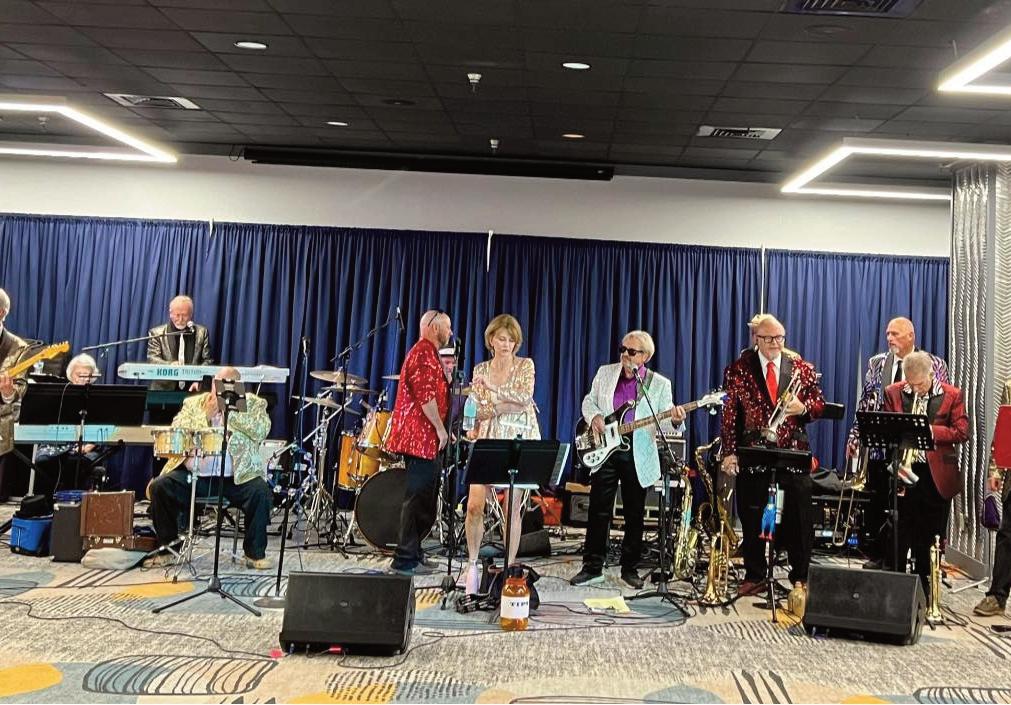 Gene Butler presents a session at the ABA Summer Conference
Joshua Hecht and Samantha Maltagliati present a Leadership Development session at the ABA Summer Conference
The Doc Rogers and Rock Dodgers Band provided entertainment during the Shrimp Boil at the ABA Summer Conference
Gene Butler presents a session at the ABA Summer Conference
Joshua Hecht and Samantha Maltagliati present a Leadership Development session at the ABA Summer Conference
The Doc Rogers and Rock Dodgers Band provided entertainment during the Shrimp Boil at the ABA Summer Conference
 Dr. Meghan Merciers, Advisor
Dr. Meghan Merciers, Advisor
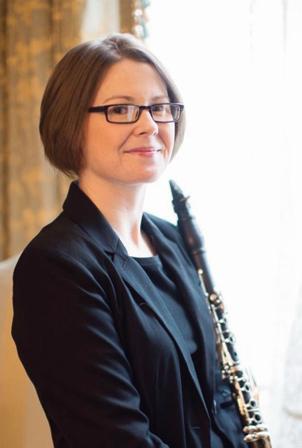


Hello, Alabama Music Educators! As you can tell, this article is a little bit different. This quarter, I want to take the time to tell you about an opportunity that my President-Elect and I had this summer that changed my perspective on advocacy and leadership.

In May, Dr. Lyda (AMEA President) contacted Matthew Suit (ALcNAfME President-Elect, Troy University) and me (ALcNAfME President, Sarah Hicks, University of Alabama) about attending the NAfME Collegiate Leadership Advocacy Summit in Washington, DC, in June. Each state was asked to send a few delegates, and

Matthew and I were excited to be the Alabama Delegates. As we got closer to our departure date, Matthew and I both shared some nervousness. We realized that this was the first time that either of us had traveled without our parents and a large school group and that the task of advocating for music education on Capitol Hill was no small feat. We were happy to learn as soon as we arrived that 20 other collegiate delegates from all across the country were just as nervous as we were. Though we knew we would be traveling with our state MEA President and officers to Capitol Hill, we all feared not being qualified to speak on behalf of music educators. Thankfully, this was far from the experience that we actually had.
From the first moment we set foot in the House of Representatives buildings, we were met with smiling faces. I was surprised that so many of the interns and staff members working in the Congressmen’s offices were even from my own school, The University of Alabama. What brought the biggest smile to my face was that when we told any staff member that we were with the National Association for Music Education, they had something positive to say about music. From
interns that played in the trombone choir at Auburn to a Chief of Staff who played saxophone in his high school marching band to Congresswoman Sewell, who played the clarinet through all of her schooling, almost every person that we talked to was impacted by music at some point in their lives. It was so inspiring to hear about how much music meant to so many different people, from so many different places, in so many different occupations.
When it was finally time to speak with either our representative or one of their staff members, I shared the story of how music has changed my life. While I was first intimidated by the policies Dr. Lyda explained and the initiatives that Ms. Susan Smith (NAfME Southern Division PresidentElect) shared the importance of, I was asked to explain why I found it so crucial for every child to receive music education. Matthew and I were happy to tell our stories, and we were pleased to hear that they provided insight, human connection, and understanding to the staff members.
On the second day, the collegiates had the opportunity to learn about leadership. One of the speakers said that maturity is understanding how your actions affect others. It was empowering to know that taking time out of my summer to go out of my comfort zone and tell my story could impact students all across America.
Matthew and I wanted to present our experience to you and say this: no one is too young, too old, too busy, or incapable of advocating for something they believe in. You have a powerful voice. If you are brave enough to step outside of your comfort zone and use it, you will make a tremendous impact.
Matthew and I would like to thank Dr. Lyda and the members of AMEA’s Governing Board for making it possible for us to experience the
experience empowered us to continue advocating for music education for the rest of our careers.
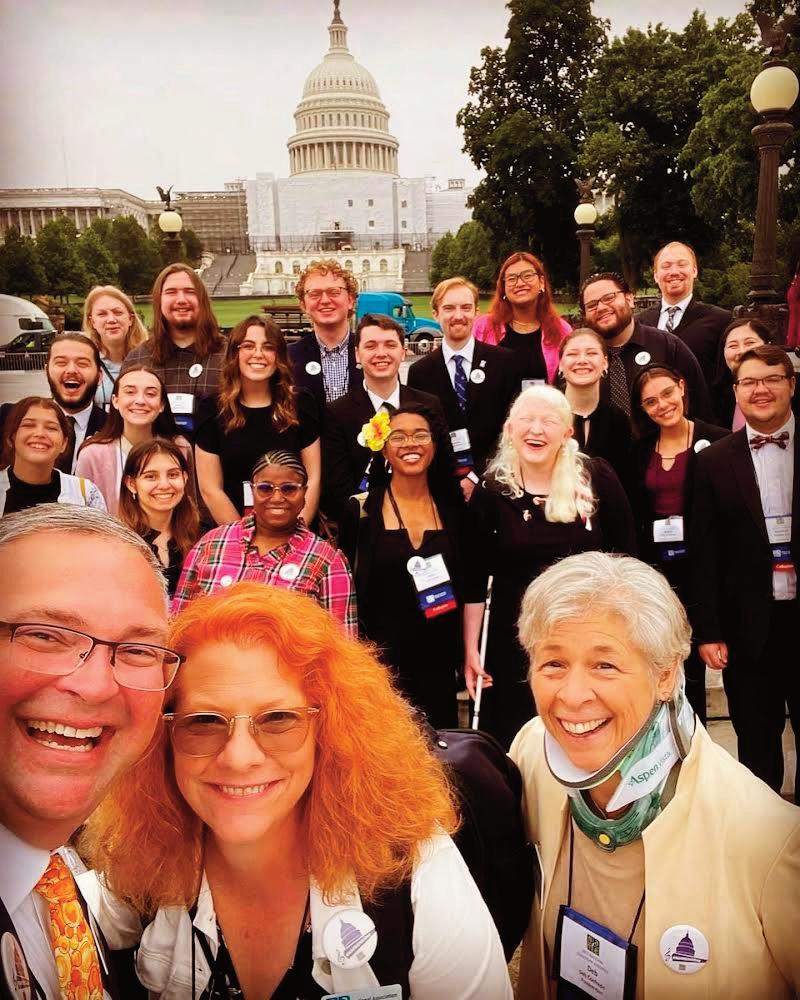
We hope you will consider attending our ALcNAfME Collegiate Summit on Sunday, October 29, 2023, at Troy University. We will spend the day learning about ways to connect all aspects of music education, and
explore newer genres such as Modern Band, to be more inclusive and inviting of all types of music! Stay tuned to our social media outlet on Instagram for announcements of registration and the schedule of professionals we will host on Instagram @cnafme_al. Join our state GroupMe as well, Alabama Collegiates!
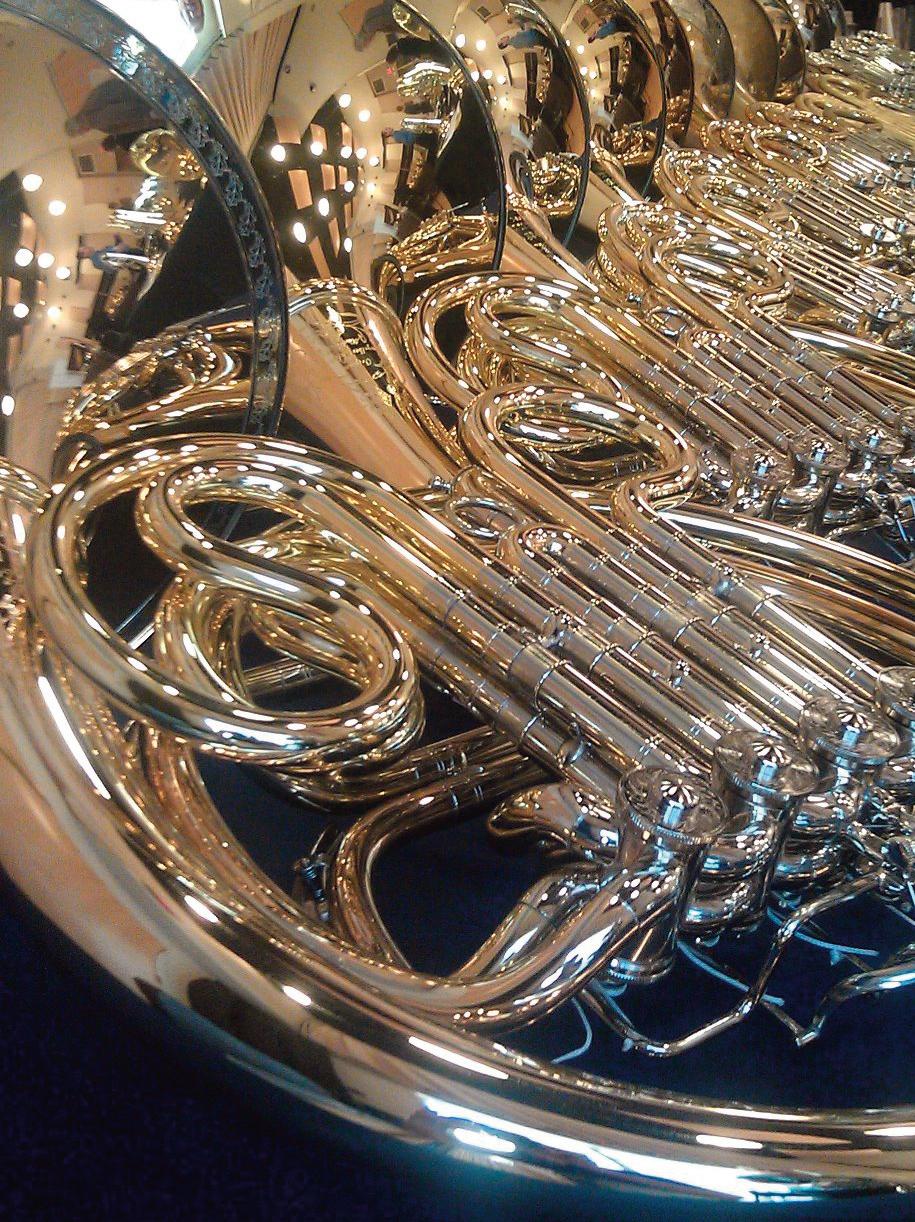
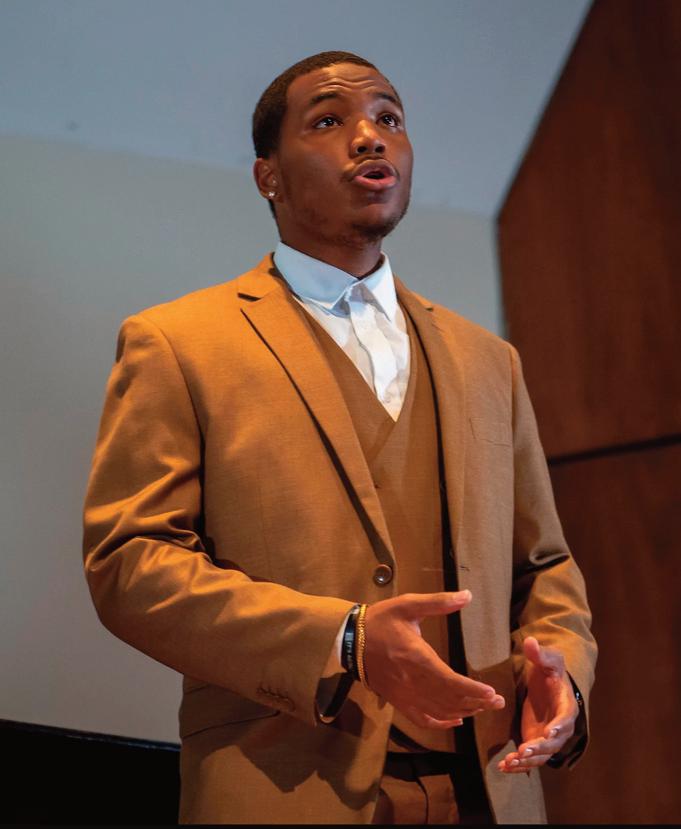


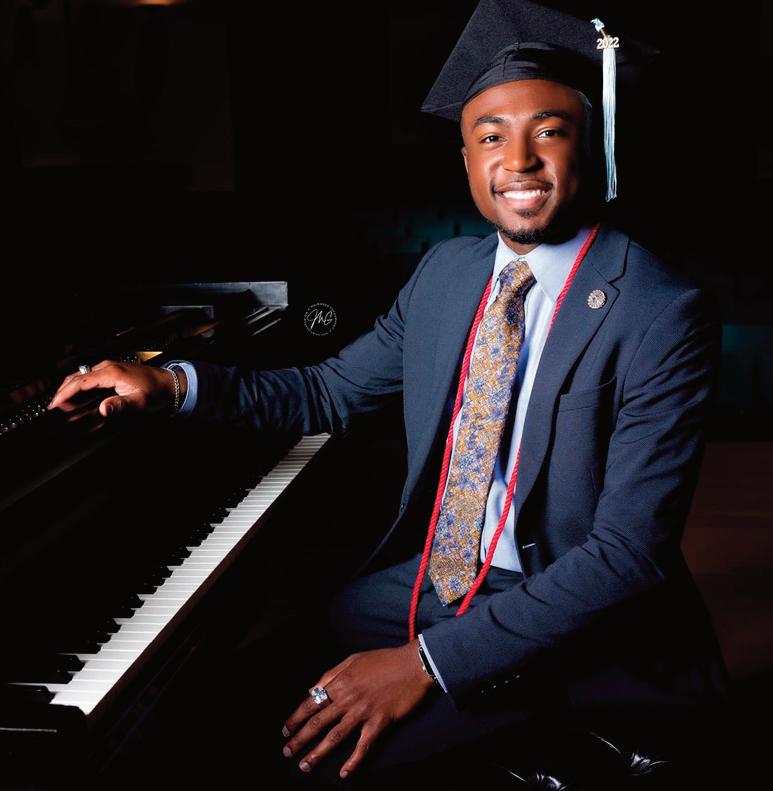
This summer has been a busy one for me. I have spent the summer preparing my triplets to head off to college. Yes, I am exhausted but thrilled for them as they are anxious to get going. Their eagerness, however, causes me some unease. I find myself looking back, reflecting on our time together, and questioning how prepared they are. Did I instill in them all the values they will need? Did I equip them with all the tools they will require to succeed?
Likewise, I am prompted to reflect on the past year and my teaching. I find myself considering whether I did all I could do for each student. You too may have taken time to step away from the business of the school year and reflect on your students’ progress and analyze how you could improve your approach to elementary music education.
Amid the hectic responsibilities with my triplets, I also had the opportunity this summer to teach enrichment camp at my school as well as music camp at church. Both experiences allowed me to dig deep and look for fun new ways to stimulate my students. I have been able to try out new lessons, those activities for which I do not always seem to have the time but have been wanting to try with my students. I have been rejuvenated and now look forward to the new school year when I can incorporate an innovative approach to my teaching, a new slant on teaching the same old standards. I discovered many of these music education lessons and activities at AMEA Professional Development Conference last year.
I urge you to make plans now to attend the AMEA conference on January 18‐20, 2024, in the beautiful city of Huntsville. I assure you that it will be worth every minute you spend in conference workshops and concerts. You will come away refreshed and equipped to make yourself a better music educator.
We are elated to have Denise Gagne once again with her 35 years of teaching experience join us to share some of the latest and greatest in elementary music education.


In addition, we are excited to welcome award‐winning composer and conductor, Greg Gilpin, to demonstrate his approach to elementary choir and share some of his favorite repertoire with us. Mr. Gilpin will also be directing our All‐State Honor Choir students as they rehearse on Friday and perform that evening in the first‐ever All‐State Elementary Choir concert. I encourage you to have your students participate in this awesome opportunity. Be on the lookout for emails about how to register your students.
 Alicia LuttrellPresident, Elementary/ General Division
Alicia LuttrellPresident, Elementary/ General Division
Meet your new executive board (2023 – 2025)
• President‐Elect – Jason
President – Alicia Luttrell
• Jackson
• Secretary – Melissa
Treasurer – Devin Lacey
• Galanopoulos
• McLendon
Past‐President – Sarah
Festival Director—Melissa

• McIntyre
District Chairs (2023 – 2025)
District 1: Lea Hoppe & • Viktoria Truesdail
District 2: Karen Morgan & • Jamie Howell
District 3: Trudye
• Confessore & Kris Lindley
• Kaitlyn Melton
District 4: Laura Clevenger &
•
District 5: Katie Boyd
•
District 6: Christy Clark
•
District 7: Regina Williams
District 8: Andrea Marsh
•
Feel free to contact your executive board members at elementaryamea @gmail.com if we may be of assistance to you in any way, and be on the lookout for emails from your district chairs about upcoming information and events in your area.
Let us continue to reflect and look for ways to be different, make a difference, and become better versions of ourselves as music educators. Let us anticipate a bright future and exciting years ahead as elementary music educators. AMEA has so much to offer us all. I cannot wait to see you all in Huntsville in January.
Sincerely,
Alicia Luttrellpages and exclusively use the new site: alabamavocalassociation.org. If
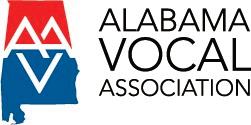
I hope you all have had a restful summer and have had time to renew and refresh for this school year. Though each school year comes with challenges, I hope that you continue to find joy in teaching your students and are excited to make music with them this year! I have spent a lot of time this summer reflecting on my teaching and I am thankful for the continuous support I have received from this organization and the many opportunities I have been provided to learn and become a better teacher. I am entering this school year energized and excited about the direction of the Alabama Vocal Association and how our events can support our teachers and students. The AVA Governing Board had a productive summer board meeting and we are looking forward to this year’s AVA events.

If you have not already done so, please renew your NAfME membership. You can do so at www.nafme.org. NAfME membership is required to register for any AVA events.

Our brand new website is now live. I am very thankful to Matthew
you see any errors or notice any potential mistakes, please contact matthew.gardner.ava@gmail.com Summer Board Decisions and Changes for 2023‑2024 Matthew Gardner is our new • digital director. He will be taking over the website and our social media accounts. He built us a new website and I would like to personally thank him for all his hard work!
A bid from Sweet Spot Live Record‐ings was approved for our All‐State Choral Festival recordings. The recordings will now be delivered via Dropbox and can be downloaded onto any device.
A teacher panel has been formed to discuss and evaluate our All‐State audition process. This panel will be working throughout the year to ana‐lyze our process, look at adding a sight‐reading component and make sure our audition process aligns with the goals and mission of AVA.
For State Choral Performance As‐sessment, the board clarified one of the sight‐reading rules to read: Any director of any a level choir may choose to read an example with one
voice part less than their highest performance voicing but must provide a rationale for this adjustment on the auxiliary information form. For example, a choir performing SSA & SA on stage may sight‐read SSA or SA.
For Honor Choir this year, we will have a gospel choir with conductor Valerie Harris from Miles College. We are looking forward to this fan‐tastic experience for our students!
We would like to thank Holly Luke for stepping in as District IV Chair for this school year.

We are in the process of hiring a new Executive Secretary and will hope‐fully have someone in place by Au‐gust 31.
Our clinicians for this year’s All‐State Festival chose fantastic repertoire and I cannot wait for our students to work with them!
MS Mixed: Alex o
Gartner, Pensacola
Children’s Chorus
MS Treble: D’Walla o
Simmons‐Burke, Winston‐Salem University
HS TTBB: Jeffrey o
Benson, San Jose State University
HS SSAA: Julie Yu o Oppenheim,
Oklahoma State University
HS SATB: Eric o Barnum, Drake University
Please visit the new AVA website: alabamavocalassociation.org to find the dates for all events for the year. Be aware now of all registration deadlines and plan ahead to avoid paying any late fees.
Our next event will be the Fall Workshop at the University of Montevallo on Friday, September 8.
I am excited to have Matthew Gawronski from Weber Middle School and Schreiber High School in New York as our clinician this year. He will be presenting relevant sessions on embracing technology in the 21st‐century choral rehearsal, navigating the changing voice, as well as a reading session. We will also have mini break‐out sessions, a performance from the University of Montevallo Concert Choir, and our General Membership Meeting. Thank you so much to Melinda Doyle for hosting us again this year. All teachers in years 1‐5 are invited to our New Teacher Luncheon for a refresher on all AVA events and to connect with teachers in your district. I hope to see you all there!
Thank you for taking the time to read about our organization. Please know that the AVA board is diligently working to improve and provide the best opportunities for our students. Please reach out if you see any area of our organization where you feel you can serve, or if you have any questions, concerns, or suggestions. Please see below the contact emails for members of the Executive Board as well as District Chairs. We all look forward to hearing from you and serving you this year.
Hilen Wilson, AVA President: hilen.wilson.ava@gmail.com
Amanda Slay, AVA President Elect: amanda.slay.ava@gmail.com
Jody Powell, AVA Vice President: jody.powell.ava@gmail.com

Nichole Hill, AVA Recording Secretary: nichole.hill.ava@gmail.com
Matthew Gardner, District I Chair: matthew.gardner.ava@gmail.com
Frank Andrews, District II Chair: frank.andrews.ava@gmail.com
Zachary Banks, District III Chair: zachary.banks.ava@gmail.com
Marlin Ward, District III Co‑Chair: marlin.ward.ava@gmail.com
Holly Luke, District IV Chair: holly.luke.ava@gmail.com
Debbie Flynn, District V Chair: debbie.flynn.ava@gmail.com
Sallye York, District VI Chair: sallye.york.ava@gmail.com
Christie Breland, District VII Chair: christie.breland.ava@gmail.com
I August 4, 3:40 PM Matthew Gardner
II August 15, 4:00 PM Frank Andrews
III August 3, 4:00 PM Zach Banks
IV August 3, 4:00 PM Holly Luke
V August 8, 4:00 PM Debbie Flynn
VI August 10, 4:00 PM Sallye York
VII August 17, 3:00 PM Christie Breland
Our district chairs will be holding virtual district meetings at the following dates and times. Please plan to be there to learn about the upcoming school year and have any questions you may have answered.
Please be sure to follow the Alabama Vocal Association on Facebook and Instagram for updates and reminders. I hope everyone has a wonderful start to their school year and I look forward to seeing you all at Fall Workshop!
Sincerely,
Hilen Wilson

As we look ahead to a new school year with both excitement and anticipation, a good opportunity presents for everyone to explore what all the Higher Ed Division for AMEA can offer to you in 2023-2024. If you are in search of professional development opportunities, you will want to read more about how to apply for and participate in the various performance and presentation opportunities available to all HED members. If your interests are in performance, we will be programming not one, but two HED showcase recitals that will take
place during the 2024 AMEA professional development conference in Huntsville in January. One of the recitals will feature a program comprised of all artist faculty from a variety of universities and colleges across the state of Alabama performing various solo and chamber works. The second recital will be an opportunity for applied instructors and chamber ensemble coaches to feature their undergraduate and/or graduate students from all disciplines and areas of applied study in performance.
Last year, the faculty recital included works by Philip Wharton, Lori Ardovino, John Mayer, Francis Poulenc, John Corigliano, and Igor Stravinsky, featuring performances by Dr. Jonathan Houghtling and Dr. Kristofer Sanchack from Alabama State University, Dr. Rachel Park from Jacksonville State University, Dr. Evan Clark and Dr. Rachel Frederiksen from the University of Alabama, Dr. Amalia Osuga and Ms. Madeline Cawley from the University of Alabama at Huntsville, and Dr. Whitney O’Neal, Dr. Meghan Merciers, Dr. Kelsey Pacquin, Dr. Gretchen Windt, and Mr. William Hueholt from the University of North Alabama. Meanwhile, the student recital featured the brass quintet from the University of Alabama at Birmingham coached by Dr. James Zingara, the Auburn University saxophone quartet coached by Dr. Michael Pendowski, the Troy University trombone choir coached by Dr. Jason Sulliman, the University of North Alabama saxophone quartet and ensemble coached by Dr. Timothy Harris, and the Huntingdon College brass quintet coached by Dr. Brandon Slocumb. If you are interested in performing on the 2024 faculty recital or would like to nominate one of your students or student chamber groups to perform on the 2024 student recital, please look for the

HED Recital Call for Performers to be posted soon on the 2024 AMEA conference website.
If research is your passion, another wonderful way to be involved at the 2024 AMEA professional development conference is by submitting a research poster proposal for inclusion in the research poster sessions presented by the HED division during the 2024 conference. Look for the HED Call for Research Posters to also be posted soon on the 2024 AMEA conference website to find out more details and how to submit your research poster proposal. The Higher Ed division is also currently looking for volunteers to serve as presiders for our clinics and sessions that will take place during the 2024 professional development conference in January, so if you would like to serve in this capacity as a presider, please let us know!
One of our more unique conference offerings in recent years has been the creation of a new EdTPA Lesson Planning Competition in conjunction with the Collegiate Division and CNAfME student leadership. This annual competition serves as a collaborative opportunity for our collegiate CNAfME members to present and take part in meaningful professional development with seasoned members from the Higher Ed Division providing feedback, coaching, and support. The competition (really, more of a friendly and supportive showcase) allows for a stage on which our music education students can shine and acquire additional experience with the planning, preparing, and delivering of effective lesson plans.
By utilizing the structural format of the edTPA performance-based, subject-specific assessment system used by teacher preparation programs throughout the United States to emphasize, measure and support the skills and knowledge that all teachers need to develop to be successful in the classroom, competition participants put into practice what they need to master while receiving valuable feedback
Saturday, January 20, 2024 CNAfME STUDENTS plan, prepare and teach effective lessons
Application Deadline: November 1st
For competition rules and to apply:
and advice from experienced music education specialists from several of the top music education programs institutions in the state of Alabama. This year, the competition will take place on Saturday morning during the 2024 AMEA professional development conference in January and will feature prizes and awards for the most outstanding presentations. Look for the HED/Collegiate Call for the edTPA Lesson Planning Competition to be posted soon up on the 2024 AMEA conference website and please encourage your music education students to submit an entry. Last year’s first prize winner, Sawyer Strickland, a music education student from Jacksonville State University, received a free complimen-

In addition to these scholarly activities, there will also be plenty of opportunities to socialize and network during the conference including at our annual HED Luncheon and at our annual HED/Collegiate Division Mixer that take place during the conference. In closing, if you desire to be part of, and take a more active role in our stimulating, inclusive, diverse community of academics, educators, and artists from across the state, then the HED Division is the place for you! I look forward to connecting with each of you more throughout the upcoming year and wish you all a wonderful start to the new school year!

Dear Members of the Alabama Orchestra Association,
I hope that these weeks of summer have offered opportunities for rest and renewal. Whether you lead one of Alabama’s youth orchestra programs, a public or private school string/orchestra program, a university orchestra, teach private or group classes, or are involved in string music education in other ways, the members of the Executive Committee are grateful for your membership and participation in the Alabama Orchestra Association. We appreciate your commitment to the music education of Alabamians of all ages and seek to be a resource for you as you work to continually inspire and nurture the studentartists in your care.
Please encourage your string students to audition for the North or South All-Region Orchestra, depending on their geographic location within Alabama. As in recent years, the string students selected for the 2024 All-State Orchestra Festival will be chosen based on their score for this audition. String students must plan to attend for the 2024 All-Region Orchestra Festival in order to attend the 2024 All-State Orchestra Festival.
To provide more woodwind, brass, and percussion students the opportunity to play in an orchestral setting, students of these instruments will be assigned to either All-Region or All-State Orchestra. This placement is based upon the audition results.
From the bottom of my heart, thank you for all that you do to ensure that orchestral music not only exists in the State of Alabama, but thrives in the State of Alabama. As we embark on this new academic year, may we strive to build musical communities where our students find safe spaces to express themselves, their experiences, their hopes, and their dreams for a kinder world where all are loved, nurtured, and supported. May this be our goal and may music be our vehicle.
Musically yours,
Joseph Lee, presidentMore information regarding auditions can be found here:
https://alabamaorchestraassociation.org

October 13, 2023 - String and Harp Audition Materials Due November 10, 2023 - Woodwind, Brass, and Percussion Audition Materials Due

Joseph Lee, President
Huntsville Youth Orchestra
Huntsville Symphony Orchestra
Jordan Kirchner Ford, Vice-President/President-elect
Alabaster City Schools
Rachel Christmas, Secretary and Orchestra Music Performance Assessment Chair
Gadsden City Schools
Tricia Marotz, Treasurer Private Instructor - Dothan, Alabama
Daniel Stevens, Past President Mississippi State University
Leroy Hughes, All-State Orchestra Chair Baldwin County High School, Baldwin County Youth Orchestra
Anna Marie Tysinger, Executive Director Retired Music Educator, Tri-State Community Orchestra
Dothan, Alabama
2023-2024 Academic Year
North All-Region Orchestra: January 6-7, 2024
Huntsville, Alabama
South All-Region Orchestra: January 6-7, 2024
Greenville, Alabama
AMEA Professional Development Conference: January 18-20, 2024
Huntsville, Alabama
All-State Orchestra Festival: February 8-11, 2024
Tuscaloosa, Alabama
Orchestra Music Performance Assessment: April 5, 2024
Alabaster, Alabama
“Secure your own mask first before assisting others.” With the screeching halt of the pandemic lockdown, prioritizing our health and wellbeing was at the forefront of our minds. Balancing our time with family was easy when there were no assemblies, concerts, or afterschool practices. While we enter a new season following summer break, we must take the time to reflect and prioritize our wellbeing this coming school year. Author and motivational guru, David Goggins, described a living autopsy as the examination of our core self to discover the true ailments that are harming us. Do not wait for a drop in cabin air pressure to secure YOUR mask. Today is the day to start prioritizing YOU, and there is no better time.
We all carry many titles ranging from friend, spouse, brother, mother, runner, etc. For the first part of my career, I introduced myself as, “Justin: the band director.” I thought I was destined to be
the world’s greatest band director. It became the core component of how I defined myself. I received many accolades for putting my job first. However, when your occupation is at the center of your identity, it is impossible to compartmentalize you

from your work. If I had a great rehearsal at school, I perceived myself as a good band director and carried a happy disposition. Conversely, if my ensemble had a less than stellar rehearsal or performance, I felt inadequate and a failure as a person. A large majority of my self esteem was based on the daily performance of teenagers. As foolish as that sounds, I know that I do not stand alone in those feelings.
You are not your job. You are you, and you are perfect (Not all of your decisions may be, and that is OK). You are the only you there will ever be. These Dr. Seuss like mantras, as cheesy as they may seem, are true. I often stress to young teachers that you may never know

what is going on in a student’s personal life; practice kindness. Treat yourself with the same respect and care that you treat your students.
Boundaries are the first step
My father would tell me about the sign outside his mill that read, “Leave home at home and work at work.” While it is incredibly difficult to compartmentalize our life, defining those boundaries is a must for our profession. I believe this to be our

greet their spouse with love. Being respectful of your students’ time by ending after school practices on time is also being respectful of your own time. The diligence you spend scheduling concerts and rehearsals should be applied to scheduling quality time with your family especially during peak hours.
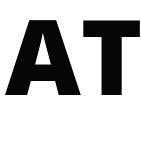
I often joke with my friends, “that is a future Justin problem,” when things
It is a MARATHON not a sprint
Teacher burnout has become a widely discussed topic among the entire educational field at various conferences and gatherings. With a tremendous amount of attrition within the field of education, we must remember that it is a marathon, not a sprint. In the long game, an educator must have pacing and organizational structure to persevere. The honest truth: teachers feel overworked, underpaid, undersupported, and probably most painful, underappreciated. I remember how daunting of a task getting out of the parking lot was some mornings.
To handle the stress, we must put on our mask before assisting others. Take care of yourself. If you feel your stress barometer reaching new heights this academic year, perform a living autopsy. Remember: This year is a marathon. You can do hard things.
biggest weakness in the battle for balance and our first step in the journey.
Carefully consider this:
Your spouse did not marry a band director; they married you. Your children do not want a choir director, they want a mom. In the same respect, your students deserve a great educator.
While I personally struggle with this, I continue to strive to make home a work-free zone. By making small changes, such as taking your work email notifications off your phone or setting an alarm to leave the office, we can start to build those boundaries. I have friends that have location-based reminders when they arrive home to

are left unresolved. I created many “future Justin problems” in the start of my career by putting myself second. Problems at work had to be resolved immediately while I put personal care and relationships last. My brain would tell me,“But I am a teacher, I love my students.” Taking care of yourself and loving yourself IS loving your students. Your students deserve the best version of you. They do not deserve the sleep deprived, malnourished, or stressed you.
When was the last time you went to your general physician, dentist, chiropractor, etc.?
What have you done for you today that will make your life better in five years?
P. Justin White currently serves as the Interim Director of Bands at Samford University. Prior to Samford, Justin served as Assistant Director of Bands at the University of Alabama and Director of Bands at Thompson High School. He is a graduate of University of Alabama and received a Masters in conducting from the University of North Texas. While at UNT, Justin was a conducting student of Nicholas Williams, Dennis Fisher, and Eugene Corporon. In 2020, he was selected winner in The American Prize in conducting and outstanding young band director by the Alabama chapter of Phi Beta Mu.

Schools. I started playing the baritone in my middle school program and that took me all the way to Jacksonville State University where I earned my B.A. in Music Education. I returned home to Tuscaloosa where I earned my M.A. in Curriculum and Instruction from the University of Alabama.
Editor’s Note: Each Teacher Profile spotlights a music educator from across the full spectrum of AMEA - new teachers, experienced teachers, retired teachers, and teachers from each of AMEA’s different divisions. This issue features Noryetta (Nory) Hall, Elementary Music Teacher for Tuscaloosa City Schools
Briefly tell us about your current position, how long • you’ve been there, and a little about your schedule.
I just finished my fourth year of teaching elementary music for Tuscaloosa City Schools. I teach at two schools: Central and Southview Elementary and I see roughly 900 students between both schools. My schedule is two days at Central and three days at Southview. TCS offers year round art and music instruction for 4th and 5th grade, while grades K-3 have art or music for one semester each. This schedule allows me to see all students that are taking music for that semester once a week for 30 to 40 minutes.
Tell us about your background – hometown, • college, family, etc.
I’m proud to say that I am a product of Tuscaloosa City
Why did you decide on a career • in music education?
I was pretty sure that I had always wanted to be a teacher, but the decision to become a music educator happened in high school. In an unfortunate situation, the sudden loss of my late band director, Mr. Ethime Emonina, showed me just how much I loved teaching music. It was my senior year at Paul W. Bryant High school and I along with other leaders in our program took over a large portion of instruction while waiting for his position to be filled.
Who are some of your • teachers/colleagues that you would consider mentors and why?

My biggest mentor would have to be Angela Andrews who is the art instructor at my school. We started our positions at the same time but I was a first year teacher to her 20+ years of teaching experience. She is a wealth of knowledge and a great support system.
I wouldn’t be the educator I am today if it weren’t for the teachers and colleagues I’ve met along the way. There are too many to list everyone but if I were to name a few it would have to be my strong music elementary team here at TCS: Karla, Jane, Linda, Jenna, and Helen, our fine arts director Dr. Jeff Schultz and the person who made me the most comfortable teaching elementary school after mostly instrumental preparation, Dr. Julie Bannerman from the University of Alabama.
• you’re willing to share? What are they?
Are there any embarrassing teaching moments
training. It was a lot of hard work but it was well worth it. Not only do I feel even more prepared to return to my classroom but the connections and friendships I made along the way will stay with me forever.
What would your students be surprised to find out
• about you?
They would probably be surprised that I play a lot of video games but most of them already know this because I often join in on random discussions that I hear throughout the school. :)
•
How do you spend your summer breaks?
I take the time to travel and see family, catch up on household projects, and REST.
• teaching position?
How about interests or hobbies not related to your
I buy and sell trading cards as an extra hobby. Very small scale but fun nonetheless..
I’m sure there’s plenty but one that comes to mind is the time that I had a 2nd class come in right after their PE. They came in upset that the coach had tricked them about a dog being in the gym that day. I said to them “If you keep calling coach a “faker” from one trick he pulled I’d hate to think what ya’ll would call me.” The general consensus was that I would called goofy… Less jokes more teaching I guess!

• Great questions wouldn’t change a thing. Thank you for having me.
What question do you wish I had asked but didn’t?
Name one accomplishment that fills
• you with pride so far in your career.
I just finished earning my Kodaly Certification through the University of Montevallo this summer. It’s three levels of rigorous instruction for your musicianship, pedagogy, materials, and conducting all packed inside two weeks of

The Department of Music at Alabama State University welcomes Mrs. Rebecca Barrineau Taylor, Choral Accompanist, and Ms. Meg Griffin, Vocal Area Accompanist as the newest members of the music faculty. The Department would also like to recognize and congratulate two exceptional faculty members, Dr. Adonis Gonzalez-Matos, Professor of Piano, for being promoted to full Professor, and Dr. Kristofer J. Sanchack, Director of Choral Activities, for being promoted to Associate Professor along with receiving tenure at ASU this past spring. Placing an emphasis on community-building and
educational outreach this fall, the Department of Music at ASU will present Golden Artistry at ASU, a series of free showcase concerts featuring performances by the ASU music faculty, for Montgomery-area middle school and high school teachers to bring their students to campus to experience. In addition, the ever-popular Piano for Children program, for children ages 612, led by Dr. Adonis Gonzalez-Matos, Professor of Piano, and Dr. Michael Zelenak, Coordinator of the Music Education program at ASU, will begin again in September running through November. We will also be launching a brand-new community outreach initiative this fall, called Suzuki Brass at
ASU, for children ages 4 & up, which will be led by Suzuki horn certified instructor, Dr. Brenda Luchsinger, who also serves as Associate Professor of Horn and Music Theory at ASU. Suzuki Brass at ASU is made possible by a generous grant from the division of Academic Affairs at Alabama State University, and we are very excited to be able to offer this new, unique opportunity to children in our local community to learn about and to love music from an early age. For more information on any of the community outreach and educational programs mentioned above, please contact the ASU Music Office at (334) 229-4341 or music@alasu.edu.
Pat Stegall, AMEA Treasurer/Registrar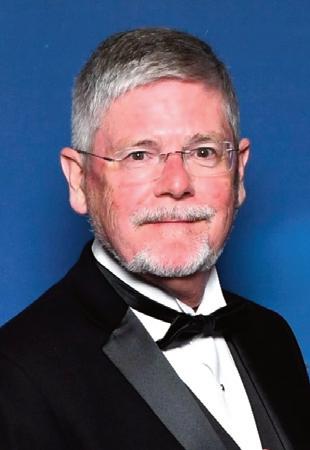
It is not too early to start thinking about attending our AMEA Conference in January 2024. Just remember, you must join NAfME, and you should pre-register if possible. A healthy organization is always concerned with growth and development, and the AMEA board is interested in growing our organization and getting all music teachers in Alabama involved in professional development through AMEA and NAfME. You can help increase our membership by communicating the benefits of membership to our colleagues. When you are joining or renewing your membership, think of those music teachers in your area that may not be active members, and send them a message inviting them to join! You could send an
email with their contact information to me at treasurer_registrar@myamea.org and I will invite them!
Remind your colleagues to join. Include the new music teachers (this year there are many new teachers out there), be involved as a mentor to the young music teachers, and invite the inactive music teachers that you know. If you just retired, keep coming to the conference (registration is free for you) and renew your NAfME membership at a reduced rate.
Renew your membership now at www.nafme.org. Membership in NAfME is required for participation in state MEA-
sponsored events like the AMEA Conference, the Elementary Division Fall Conference, and All-state and Musical Performance Assessments. Joining NAfME secures your membership in AMEA and your division.
Registration will open soon for the 2024 AMEA conference in Huntsville, so be on the lookout for a link to the online registration at www.myamea.org. You will find it is easy and will save you time and money. Reunite with friends and colleagues from all over the state in January. Rejuvenate your energy, renew your enthusiasm, and join us as we gather in Huntsville.

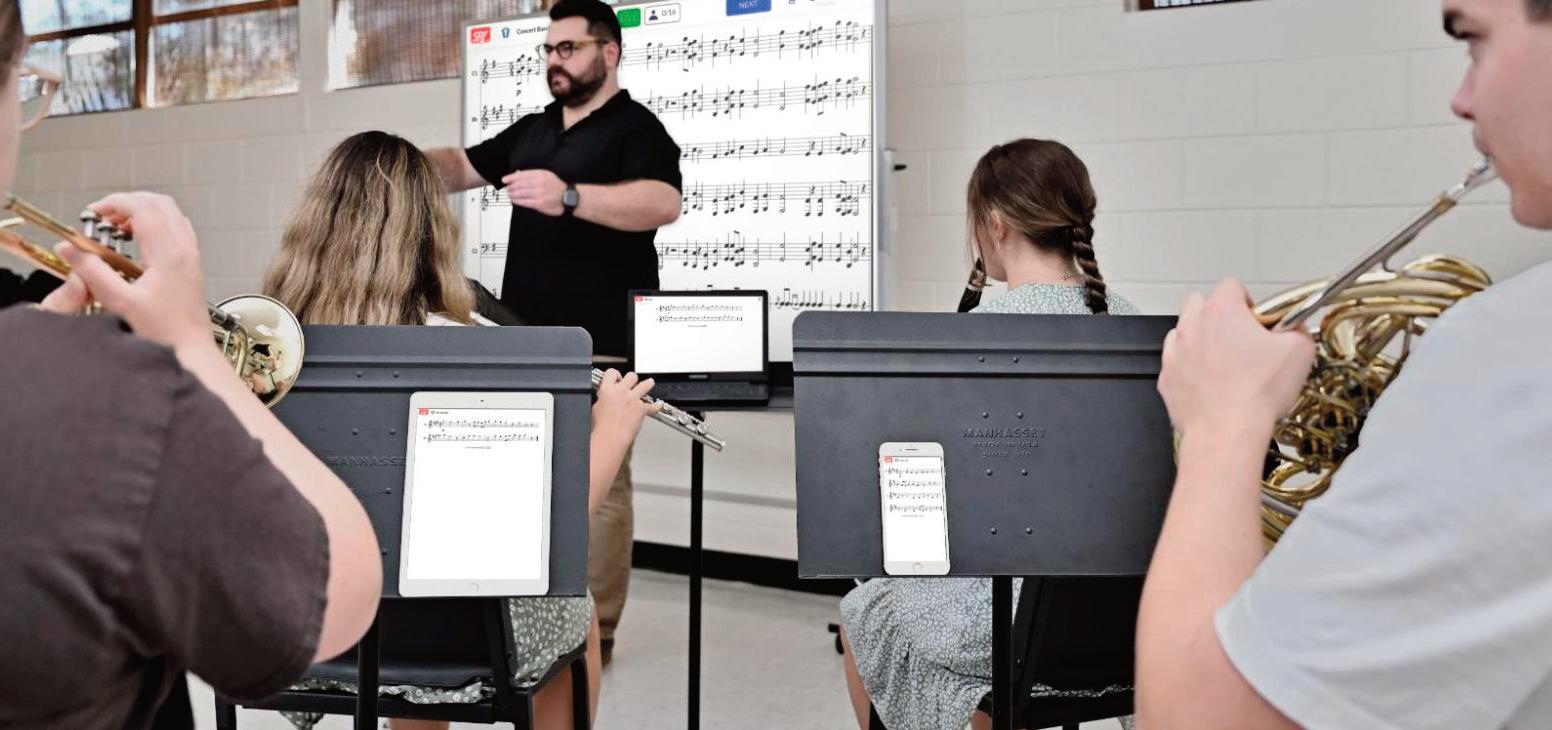

On June 24, 2023, Jerry Lamar Countryman passed away in Richmond, Texas. He was born on November 5, 1932, in Attalla, Alabama, the son of William Levette Countryman and Fay Warsham Countryman. Jerry graduated from Emma Samson High School in Gadsden, Alabama in 1949. After high school, he attended Peabody Teachers College in Nashville Tennessee. He then married his high school sweetheart in 1953 before he was drafted in 1954. He earned the rank of Specialist 3rd Class as a trumpet player in the Third Army Band Headquarters Band in Fort McPherson, Atlanta, Georgia. After being discharged from the Army in 1956, he graduated from Jacksonville Teachers College in Jacksonville, Alabama with a Bachelor of Music Education degree and in 1959 received his Masters of Music Education from the University of Alabama.
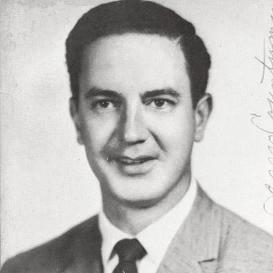
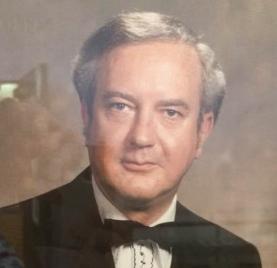
After teaching in Ohatchee and Oneonta, Alabama for short periods, Jerry became the band director for the Decatur City Schools in Decatur, Alabama. Under his direction, The Decatur High School Band received 21 years of Superior ratings at the Alabama Bandmasters Association State Band Competition Festival. The band performed at the 1965 Southern Division MENC Conference, the 1979 Southeastern United States Band Festival (Troy), and the 1982 Tri-State Band Festival (Florida State University). He served as the President of the Alabama Bandmasters Association and in 1983 was inducted into the Phi Beta Mu Alabama Bandmasters Hall of Fame. In 1983, he retired after teaching for 22 years at Decatur High School and in 1984, Jerry and Elna moved to West Columbia, Texas where he was the band director at West Columbia High School for six years before retiring a second time in 1990. They lived in West Columbia for 32 years before moving to Richmond, Texas in 2017 to be closer to their sons. He is survived by his sons Randy Countryman and Greg Countryman, grandson Ty Countryman, Niece Joni Smith and her daughter Emily Smith Riley and Jane Ann Countryman.
One of the things I learned from Mr. Countryman was to dig into details in rehearsal. We would often hear individual sections, individual parts, and sometimes even individual people to make sure a part was being played correctly. And correctly didn’t mean just the correct notes and approximate rhythm! It meant correct notes, exact rhythms, marked articulation and dynamics! Details mattered! It could be time consuming, but there was a price that had to be paid for a great sounding band. We understood that because we learned it from Mr. Countryman. Another thing I learned was the importance of fundamentals. We learned about The Seven Essentials of Tone Production, the balance pyramid, the syllables to use for each articulation, the Rhythmic Value Pyramid, and such things before we got into a piece of music. We used methods and Bach chorales in the high school band class, and individually we worked through the Prescott Technique System before we started All State music. Mr. Countryman believed in fundamentals and believed in the systematic presentation of fundamentals. Some of the things I learned from Mr. Contryman were not about music and rehearsal, but they were important. We learned the importance of being on time (if you’re on time you’re late), about our conduct and personal habits, like not yawning without covering your mouth (I’m not your dentist), dressing appropriately and not wearing the uniform in a non-uniform manner, and so many other things. One of my favorites was the importance of personal excellence (Don’t be a part of the vast army of mediocrity). As I reached the latter part of my career and reflected on my own personal style I realized that one of the important parts of my own teaching style was a reflection of Mr. Countryman. I hope all of the teachers out there had as good a role model as I did.
Jerry was an outstanding band director, and I had the wonderful opportunity to follow him at Decatur High School. Each year Jerry recorded the band for the students to have a record of their work. During the mid 80’s I was rehearsing Verdi’s La Forza del Destino with the band in preparation for state contest and found a recording of the piece that Jerry had made of the band in the early 60’s. That performance was excellent and surpassed all expectations. It redefined a superior rating. Sometime later, we organized a reunion for all previous Decatur High band students. It was a delight and inspiration to watch Jerry and his former students interact with each other. To say that he was a great band director and teacher is an understatement.
From Tommy Sipes...It was my privilege to be a student of Jerry Countryman from 5th to 12th grade, and later to serve as Band Director for 4 years at Decatur High's feeder school, Oak Park Middle. In my opinion, Jerry's greatest attribute was his incredible focus on detail. He was as thorough in making sure that beginners were taught correct basic fundamentals, as he was in perfecting a difficult piece for performance at State Contest. Jerry helped set the standard for band performance in Alabama. All of those who knew him will miss him deeply.
From Byron Dawes...When I met him was when he came to Somerville Road Elementary school in Decatur, AL, to administer the Selmer Music Aptitude test to all 4th graders. That was spring, 1967. In the fall of 1967 when I was in 5th grade, I walked across the street with my other band friends to the Decatur High School bandroom for my first day of band. I remember everything about it. That afternoon when my mother picked me up from school, I told her that I had changed my mind about what I wanted to be when I grew up (I said I wanted to be a doctor) and now I wanted to do “do what Mr. Countryman does,” That hasn't changed. I cannot possibly relay the experiences of my years in band adequately. Elementary, Junior High, and High School band under the baton of Jerry Countryman was life changing. He didn’t just teach about music, he taught about life THROUGH his teaching of music, and all the while he was instilling his love of music in us. We learned as much about how to live life as we did how to rehearse, play, and enjoy music. It is difficult to use a few words to describe him. There are some things that stand out, however. He was consistent, persistent, methodical, thorough, calm, determined, and fair. You knew what to expect in rehearsals. There was a consistent standard and insistence on maintaining that standard. You were not complimented for falling short, but you were always encouraged to continue to attempt to improve. After he retired, I heard him say “I never handed out praise like lollipops, so when I did compliment a performance, I meant it.” Every rehearsal had a procedure and I vividly remember our warm-up and technical studies procedures. Rehearsals were planned. He knew what he wanted to get done that day and the results he expected to hear. He would tolerate no interruptions or issues to get in the way of our rehearsal time. Expectations were known by all, and were consistent from day to day, week to week, and year to year. He expected nothing less than our best, and he had the same standard for himself. I think my favorite story to relate is how he approached our summer band rehearsals (these happened on Monday evenings and, I think, Thursday afternoons. ALL concert band. We didn't approach marching band until around band camp time). As a new incoming freshman on my first Monday night rehearsal, he passed out a couple of those old transcriptions: Finale to Tchaikovsky 4th, and 1812 Overture. He said “Let’s do a little sightreading…” I just sat there watching notes go by. I was stunned to hear a lot of the older band were reading so well. I think I played a couple of the longer notes. When I left rehearsal, I felt that I was nowhere near good enough to be in the Decatur High School Band, and embarked on the most determined practice schedule I had ever attempted for the remainder of the summer and into my freshman year. When my sophomore year rolled around, I attended the first summer band rehearsal and he passed out Tchaik 4 Finale and 1812 and said “Let’s do a little sightreading.” I did much better, but I noticed the freshmen students watching notes go by with a panicked look on their faces. I am pretty sure their practice began in earnest after that night. The man was a genius…

Throughout his life he enjoyed playing his trumpet and later his bass guitar. These are just a few of the groups in which he participated: The Hungry I; The Downtown Horns; The Texas Jazz Cats; The Kings of Swing; Wylie Community Band; East Alabama Community Band; Murphy Road Baptist Praise Band; and most recently First Baptist Church of Opelika Orchestra. He is survived by his wife of 53 years, Becky Goss of Opelika, AL; his daughter Allison (Clay) Stark; and his grandchildren Savannah Stark and Hunter Stark of Parker, Texas.
From Mike Stough...Stacy Phillip Goss, 76, of Opelika, Alabama died on Thursday, June 15, 2023, following a brief illness. Stacy was born on February 7, 1947, in Tallassee, AL to Frank and Hazel Goss.
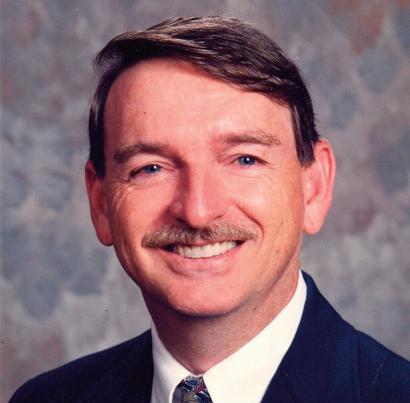
His early years and teen years were spent in Tallassee, AL, where he excelled in music. He became a member of the Tallassee High School Band where he not only won numerous awards but met his sweetheart Rebecca Willis Goss. After graduation, he attended Auburn University; joined the Auburn University Band; played with the Auburn Knights and pursued a BS Degree in Music Education. He received a Master of Arts Degree from the University of North Alabama, Florence, AL. In 1970, Stacy was hired to start a band program at Brooks High school in Killen, AL. Under his leadership the band program evolved to win several superior ratings and finished 1st in their class at the Alabama State Contest of Champions. During the five years as Band Director at Brooks High School, Stacy held a secondary job as a studio musician for the now famous recording studios in Muscle Shoals, Alabama. He played trumpet on numerous recordings for artists from all over the country who came to record at Broadway Sound Studios, Muscle Shoals Sound Studios and Fame Studios. In 1975, Stacy became the Band Director at Albertville High School where he taught for over twenty years. During that time the band received many honors including participation in three Macy’s Thanksgiving Parades; winner of the New Orleans Greatest Band in Dixie contest; winner of the Tri-State Marching Festival, Chattanooga, TN; and Grand Champion of the American Music Festival, Opryland USA, Nashville with the symphonic band. He was an avid Auburn fan and enjoyed that the AHS band had the opportunity to perform twice at an Auburn University football game.
According to Stacy, “At Brooks, Albertville, and Carrollton Christian, it was my students that achieved superior ratings, won state championships, won festivals, participated in multiple Macy’s Parades, got standing ovations etc. My contribution was that I cared about them very much.” His additional accomplishments include Outstanding Young Men of America; Jacksonville State Teacher Hall of Fame finalist; Albertville Citizen of the Year; Albertville Teacher of the Year; and President of the Albertville City Education Association.
When writing about my friend Stacy Goss, I hardly know where to begin! I met Stacy as a freshman at Auburn University and we began a friendship that has lasted ever since. We both played Trumpet in the Auburn Band and the Auburn Knights Orchestra. As a matter of fact we had just begun talking about playing together at the Auburn Knights reunion. Stacy was much more than a great musician and teacher. He was a great friend that would go out of his way to help others. On one occasion, he helped me get to the hospital as I was having a lot of health issues. Little did anyone know that just in a short period of time he would be the one that we would lose! After college we both moved to Florence, Alabama to play in the recording studio in Muscle Shoals. We spent many long nights in the studio and got up and worked the next day! We had many long discussions not only about our work but about life itself. We could talk to each other about anything I could go on and on but space doesn’t permit me to do that. I’ll just say that I loved my friend Stacy Goss and I will miss him greatly!
Stacy Goss - What a man, what a husband, what a father, what a teacher, and what a friend. I am thankful he was my partner in Albertville. I am thankful to have had the privilege of watching him work his magic each and every day. He made me a better teacher, a better friend, a better husband, a better father, a better man. Stacy was my friend.
Stacy Goss was not only a legend in our community of Albertville, but he was equally well respected in the music education community across the southeast. He dedicated his life to educating and instilling confidence in thousands of students. His unique approach to teaching band was highly successful, as evident by three Macy*s Thanksgiving Day Parade performances over a 15-year period. While earning countless accolades throughout his career, Mr. Goss never allowed the focus of his program to shift away from his students, and he always put the experience of the students first. Upon retirement from education, Mr. Goss founded American Travel Consulting and built the company into a prominent student tour operator in the southeast, continuing his efforts to provide students with unforgettable memories and experiences. Many former colleagues traveled with ATC because of the high respect and trust they put in Mr. Goss. Hearing thousands of stories of Mr. Goss through the years reminded me of just how beloved he was by his students and respected by his peers. His philosophy of “always doing the right thing” will carry on through generations of former students and their families. Stacy Goss was certainly one-of-a-kind, and his memory will live through all those he touched during his 76 years with us.
When I celebrate the birthdays of those I love, whether family or friends, it is never about what they look like, what they have achieved, or what they can do for me. It is always about who they are, as it was with Stacy. I met Stacy while I was working as band director in Troy, Alabama. It seems like yesterday because there was a meaningful connection between the two of us. We shared many common likes and I learned a lot more from Stacy than he got from me. He will always be greatly missed by myself and countless others. Our spirit is ageless and precious in God’s sight and in the hearts of those who love us. Thank you, Stacy, for being a great and caring friend.
From Curtis Burttram...An Original...One of a Kind...Legend. I struggle with finding words to describe my respect, admiration, and deep love for Stacy Goss. I always looked forward to being in his presence and learning from his knowledge and insight, whether about band, music in general, our mutual love of the classic horn band songs, and especially about human nature. I was blessed to get to be a part of the Albertville "Aggie" Band Culture that Stacy created when I became band director upon his retirement. As difficult it was to follow him and all the success the band had achieved(see Ray Perkins replaces Bear Bryant) I accepted the position because of who Stacy Goss was... knowing he would be my strongest supporter and aly. Because THAT WAS who HE WAS... always wanting the best for any person he crossed paths with especially students, band parents, and fellow directors. All of who have had the priviledge to teach and work with the Aggie Band since he came to Albertville in 1975 know we stand on his strong shoulders and the incredible foundation he laid for 21 years... the most amazing high school and middle school band program I know of. His legacy lives on through all those students and all of us who he made better from having known him.
From Kirk Clark...
Mr. Goss, as I have always called him, came to Albertville in 1975 as the Albertville High School Band Director. From day one, it was obvious to me that my choosing Band as a class and a way to coast through high school quickly changed. This class got serious real fast, As I was told one day that if I were to remain in the program, my attitude among other things would have to improve. I quickly began to call this the Mr. Goss way instead of my way. That is when it all began for a know-it-all, rebellious 16-year-old that did not understand the Mr. Goss way…. yet. But it did not take too long to learn values like;

Determination
• Dedication
• Do your best
• Commitment
•
•
Respect is earned
From Rick Teel...If Stacy were here, I think he would agree with the term Accidental Band Director. He planned to finish his degree at Auburn and find a job in another field. But life situations, necessity, and opportunity changed that. That’s a whole other story in itself, and he had lots of good stories. Once he had a job, he realized that he liked dealing with the students and watching them excel. If you have been involved in music education in the last 50 years, you were probably aware of his bands. If you haven’t seen them in person, you’ve might have seen them on Thanksgiving morning. And even if you missed his bands, you may know him through his business, American Travel Consulting. In both endeavors, he was always there with a smile, willing to listen, and help in any way he could. A big part of Stacy’s legacy will be his kindness and his willingness to help people. He will surely be missed as a music educator, loyal friend, and an outstanding human being.
•
• Hard work pays dividends
And many more. This time period was a turning point in my life, for the best. As Mr. Goss did for many, many others, He gave me a chance. He believed in me. He caused me to strive to be the best I could be. I will always have the utmost respect for him. As I told him, every time we talked over the last few years, I will be forever grateful to Stacy Goss for investing in me. For taking the time to help me realize the above-mentioned values and the benefits of them. As I look back, from what I know about his illustrious career, it would be hard to imagine the perpetual, positive impact he has had on so many people. Whenever I have the chance to speak, I try to always finish by saying we should look and find ways to make a difference in people’s lives because there have been so many that have truly made a difference in mine. I always think of Stacy Goss. Stacy Goss. Great Man. Great Family. Life Well Lived.

You are going to be a student-teacher; what an exciting time for you as a young professional!
No more talking in the abstract about learning theory, programming, or Neapolitan chords, right? WRONG! You will still do all of this and more as a teacher. Your teaching internship is a small-scale window that gives you a glimpse into all of the pedagogical and non-pedagogical aspects of the teaching profession.
I was fortunate enough to student-teach in a small southeast Alabama community where everyone knew everyone. The students, faculty, staff, and parent organizations were very close and connected. Because of these connections, I was afforded a stellar student-teaching experience, one that continues to influence my various approaches in the classroom.
During my internship, all of the student-teachers would convene biweekly in a lecture setting with our university supervisor to highlight our experiences, discuss what worked well and didn’t, and how we were fairing. The most important question posed in every session was, “What are you working on now?” This question implied that our efforts as inspiring, thoughtful, assertive, and dynamic teachers were never-ending. Of the many conversations and late nights that our cohort spent together talking shop, we recognized that we were finally putting the abstract from our undergraduate education curriculum to use! The Zone of Proximal Development? It mattered. Being able to explain why a V7/V chord functions how it does? It mattered. Understanding how to resolve conflict? It mattered. Each of these things and more played a
great deal in the student-teaching experience and positively shaped our skills as musicians, teachers, and music educators.

From those late-night conversations and many seminar sessions came the ten points below. These are some of the most significant takeaways from my student-teaching experience.
Who are you? You will be the newbie on the block. 1 You must be very proactive about making your presence known even before you arrive. It’s very important for everyone that you will encounter to know who you are! This includes your mentor teacher, your students, administrators, and other teachers that work in the building. And while you may not see it as commonplace, it would behoove you to make yourself known to the classified staff as well (the nutritional staff, custodians, administrative assistants, paraprofessionals, etc). This allows you to start, build, and maintain a professional working relationship with everyone! Finally, you need to make yourself known to the parents. Consider writing a letter that includes your background, goals for student-teaching, and how you will help provide great musical experiences for the students. All of this work in conjunction will set you on your way to being known!
Who are they? The easiest way to connect with the 2 students is by learning and using their names. In a small program, this may be very easy to do very quickly. This may be challenging to do in a larger program or an elementary music classroom, but the challenge should
not phase you. If you expect the students to know you, you need to know them. After learning the students by name, you may consider creating activities where you learn about their interests! What music do they like? What are their hobbies? What are their favorite holidays? You can find ways to incorporate their interests and tidbits about them into various music activities. From my experience, the more effort you put into connecting with the students, the more responsive they will be to you.
You are second in command. Your mentor teacher 3 will allow you PLENTY of opportunities to lead, but your expectations need to mirror that of your mentor teacher. Remember, it’s their classroom; you are privileged to have the opportunity to learn from and work with them. Yes, you will be seen as an authority figure, but [in most cases] you are not listed as the teacher of record, nor are you employed by the school district. You can learn about the policies, procedures, and expectations of the classroom and school by…
Communicating with your mentor teacher. Well, 4 you really need to communicate with everyone! This includes your mentor teacher, university supervisor, students, administrators, etc. However, you will be learning how to “be a teacher” in real-time from your mentor teacher. Pick their brain about philosophy, expectations, how to teach a concept, etc. You are being placed with professionals who have far more experience than you do. You can only benefit from asking questions. Yes, you may be an aspiring teacher, but teachers are learners, too! Similarly, they will give you the ‘ins and outs’ of how the school operates, school policies, and how to become better at the craft. If you take advantage of forging a working relationship with your mentor teacher, their guidance will set you up for great success once you get into the real world. You will also find a professional [and hopefully] lifelong friend in them.
Remember the lesson plans? They DO matter. If 5 you fail to plan, you plan to fail. I was fortunate to have a mentor teacher who would ‘throw me in the water’ with very little notice. In fact, I was on my own on my second day of student-teaching! And of course, no matter what happens, the show must go on. How was I to teach a lesson to several classes of students whose names I didn’t know, especially with very little prep time? The answer – be prepared. Sure, your teacher will help you develop a plan if there is an expected absence, but this level of preparation won’t always be at your disposal. Plus, the lesson plans matter for many more reasons than filling instructional time. You are teaching content that students need to know. It is your job to help make them aware of, understand, and apply knowledge. Having a plan does not just help with classroom management… IT IS CLASSROOM MANAGEMENT ! Your preparation and overplanning of lesson material help minimize behavior problems so that you can maximize instruction! When something on your ‘plan’ goes awry, don’t panic – just try something else. Remember, you are one of the experts in the room. Everyone is counting on you to know the answers. Can’t know the answers if you don’t have a plan!

Be excited AND exciting! “Every day is a great day 6 for band!” Each day is the best day to teach whatever you will be teaching. Your students will be as bought in as you are and will mirror your example. If you are thrilled to make music with them, they will be thrilled to make music with you. If you are upset or bring your baggage to the instructional space, you are inviting the students to do the same. You set the tone for the environment. You are a leader. Even on a bad day, you don’t get to have a bad day. Show up each day with a positive attitude, ready to work. Smile!
Be professional. This goes without saying, right? A 7 professional boundary between you and the students must be in place. Be friendly. Don’t be their friend. Let
the students know your expectations and tell them what can be expected of you. After this, follow through on your word. If you have to ask, “Is this a good idea,” it’s not. Maintain the highest level of professionalism as often as possible (this includes how you dress).
RECORD YOURSELF . You will not enjoy it, at 8 first… but this is one of the most beneficial ways to assess yourself and have others assess you. You will eventually say, “I wonder why that didn’t work,” and having video evidence of whatever ‘it’ was will allow you to review your approach! You will be able to listen to your speech pattern and evaluate whether your pacing is effective. You will notice off-task students and determine whether you are interacting enough to keep them on task. You will identify effective strategies that you may use as you continue to build your teaching arsenal. As you gain more recordings of your teaching over time, you will notice differences in your skill level to connect, pace, and deliver instruction. Plus, years from now, you’ll have something to compare yourself to once you’ve written the success story that will accompany you.
Reflect. I was afforded a great deal of podium time 9 in my internship. My mentor decided that if I was to learn how to ‘do,’ then I needed to ‘do’ as much as
possible. On days when I was to teach full class periods, I was given little guidance on what to do and was sent off to the races. I planned. I executed. I tried. I succeeded. I failed. What worked, I kept. What didn’t, I either did away with or retooled to make work. And at the end of each day, we (my mentor and I) would sit and talk about the day. Sometimes, there was simply a “good job.” More often than not, we got into fine detail about why an approach was effective or not, how to pivot when the lesson plan failed, and what to do when I didn’t know what to do. Use the criticism to make you better at the craft. Be willing to admit when you don’t know or understand something and ask for help. Growth is the end goal. There will be much to learn, accomplish, and reflect on.
ENJOY THE EXPERIENCE! This is what you’ve 10 been waiting for! This is your opportunity to build your brand. What will you say? What will you do? How will you do it? These are all questions that you must ask and answer. What you make of your experience as a student-teacher will heavily influence how you ‘find your way’ as you transition from being a student to being a teacher. Show up early. Stay late. Set out the chairs. Greet students at the door. Smile. Be inviting. Be kind. Have high expectations. Make music. Make a lasting impression. Set boundaries. Plan. Execute. ASK QUESTIONS. Work hard. Enjoy every minute. You were made for this!
The list is not exhaustive by any means. In fact, it’s neverending. These ideas and questions will follow you into your first job and maybe even for the remainder of your career. Embrace them! You are a lifelong learner, and we learn best by doing. As we grow and gain experience, we find ways to do it better little by little.
Have a great school year and student-teaching experience!
De’Shun J. Iverson is an alumnus of Troy University. He student-taught in Spring Semester 2022 at Opp Middle School and Opp High School in Opp, AL with M. Dillon Worley. He is currently a Graduate Music Education Major and Graduate Teaching Assistant at Troy University. His primary responsibilities include co-teaching the University Concert Band and working extensively with the “Sound of the South” Athletic Bands.


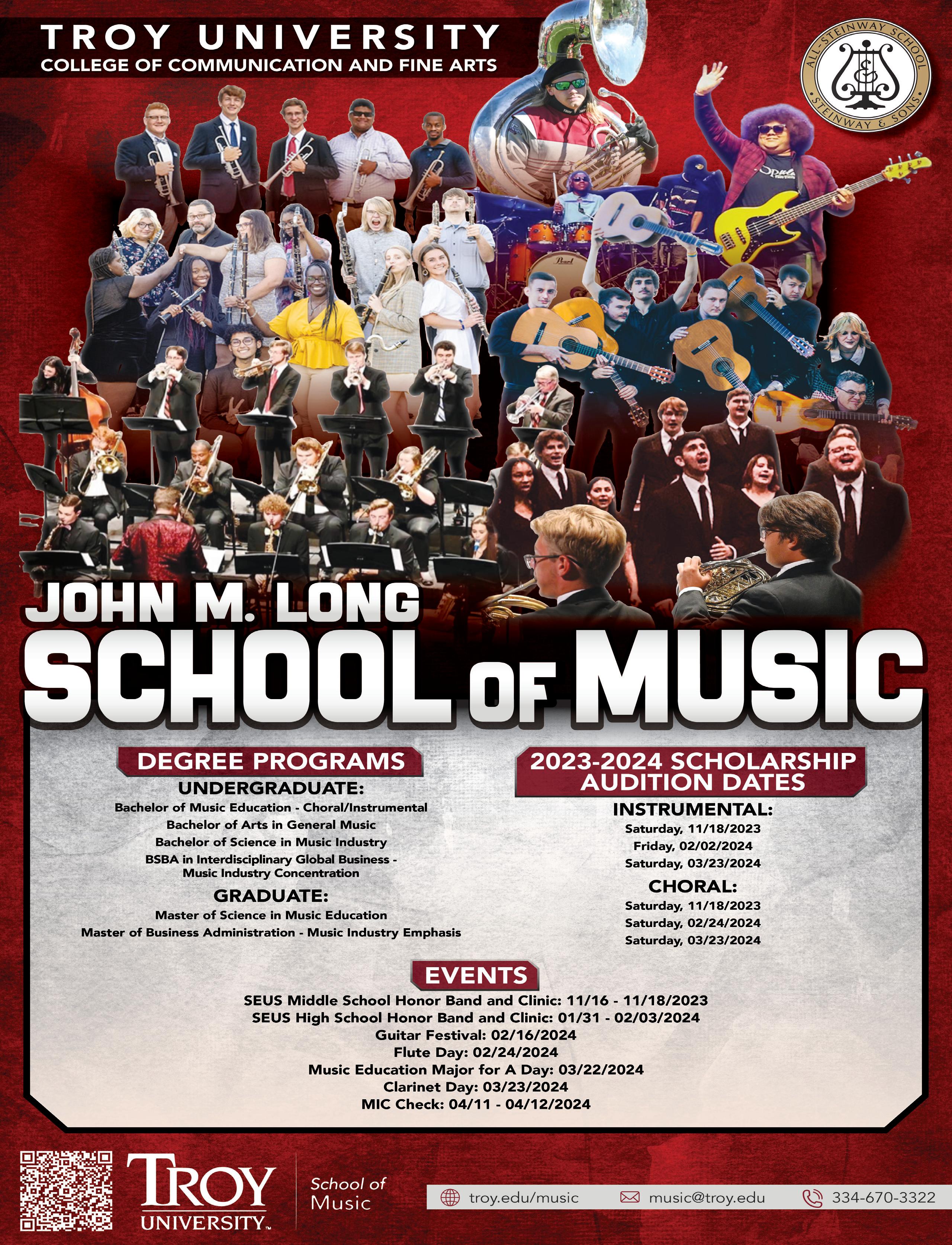
Music is a calling. A feeling, a dream for those that are awake. Music education, too, is a feeling and a calling. It is a profession that demands time, study, and love.
Time is spent with your students, time is spent practicing and reading scores. Time is spent looking at fundraisers and going to meetings that have nothing to do with music, but only on the surface is that true. Even things that at first would appear as tangential to music education can sometimes be indispensable to the teacher, and more importantly, to the students. Part of our job as music educators is to cut through as much red tape as possible so that our students can enjoy the better parts of the music experience, rather than lobby for the arts at our behest. Regardless of the specificities, time is vastly important, and is a resource to a music educator.
Study can be looked at as a way to spend time, but I feel that it is important enough to look at separately. In my experience, the most important thing you can teach a student to do is to practice well and to love their band. With these two things in mind, I believe any student will give their best effort, and that is what matters. To the music educator, it is vastly important that they follow their own example, and put just
as much work into their side of the concert as their pupils. If they must learn from their mistakes, we must too. We must acknowledge our own failings, as much, if not twice as much, as we acknowledge theirs. Not out of any sense of self-loathing, but honesty. Love. We must show them that confidence and perfection are not synonymous. If we can mess up, ourselves (and with all of the duties of a band director, that is not unlikely), acknowledge it, and move on, we set a good precedent. If we dedicate ourselves to studying the scores we put in front of them, we show them that we care and are working too. Oftentimes, many young pupils see their teachers as immutable bastions of art, unflinching and perfect. This is, of course, a lie; we simply have more experience than they do at the time. Showing them that we all study and work to improve ourselves unites us as band PEOPLE, not band directors and band students, but a united force, with one purpose. Love is most important of all. A quote I personally agree with posits: Without luck, you can’t catch a fish in a flood, without love, you can’t divine truth from blood. In my opinion, love is the cornerstone of all education, especially music education. One has to love music itself to enter the field (no one ever got
into teaching for the lucrative salary or the tax benefits), but further still one must love people. Those who love music but despise children should seek employment outside the education system. We are not ascetic hermits, musing on philosophical ideas of music in isolation, we are here to further all of our journeys at the same time.
These traits are important to be a music educator, but I believe that more importantly, music education will allow us to grow these traits. Who doesn’t want to be more timely, studious, and loving? I believe that music education is a way to grow spiritually as well as a way to grow others around you, and I want to be better. I also want to impart that want to be better to my students.
Every student should have access to music education, no matter where they were born or who they are. The biggest barriers to entry are those of cost. Relatively speaking, music can be expensive to get into compared to other professions, both timewise and monetarily. Most kids, at least around here, grow up playing games like football, and are taught, basically from birth, the rules of most sports by their parents. Music, however, is elusive to those who don’t have family already in
AMEA recently awarded the FAME scholarship to Jordan Cutchens, a 2023 graduate of Holtville High School. Scholarship recipients must have attended the FAME program and plan to major in music education at an Alabama university. Jordan plans to major in music education at Auburn University.the profession. That means that a lot of students getting into music have little to no idea of what to do on their first day. I should know. On my first day playing clarinet, I put the reed on backward, broke it, and had no other reeds (I spent the rest of the day furtively pushing buttons to figure out what they did, a sight which brought my young brain much joy.) Secondarily, instruments are expensive, and parents that have to buy their own instruments from day 1 can be scared off pretty easily. Because of this, it is important to lobby for music education in your community and your parent-teacher organization, and in your administration, and even negotiate for the companies that will sell for the best price. As I said earlier, it’s our job to cut through the red tape so they can enjoy their journey without having to face some of the bureaucracy that surrounds them. In “Night in the Woods”, it was wisely put: “A lot of the scariest stuff is really boring.” We should do our best to save the kids and their parents who work. Music should be enjoyable, not like filing taxes. At least, not on their end. If we can ease the process for them it will have been well worth it.

2014 Carl Hancock
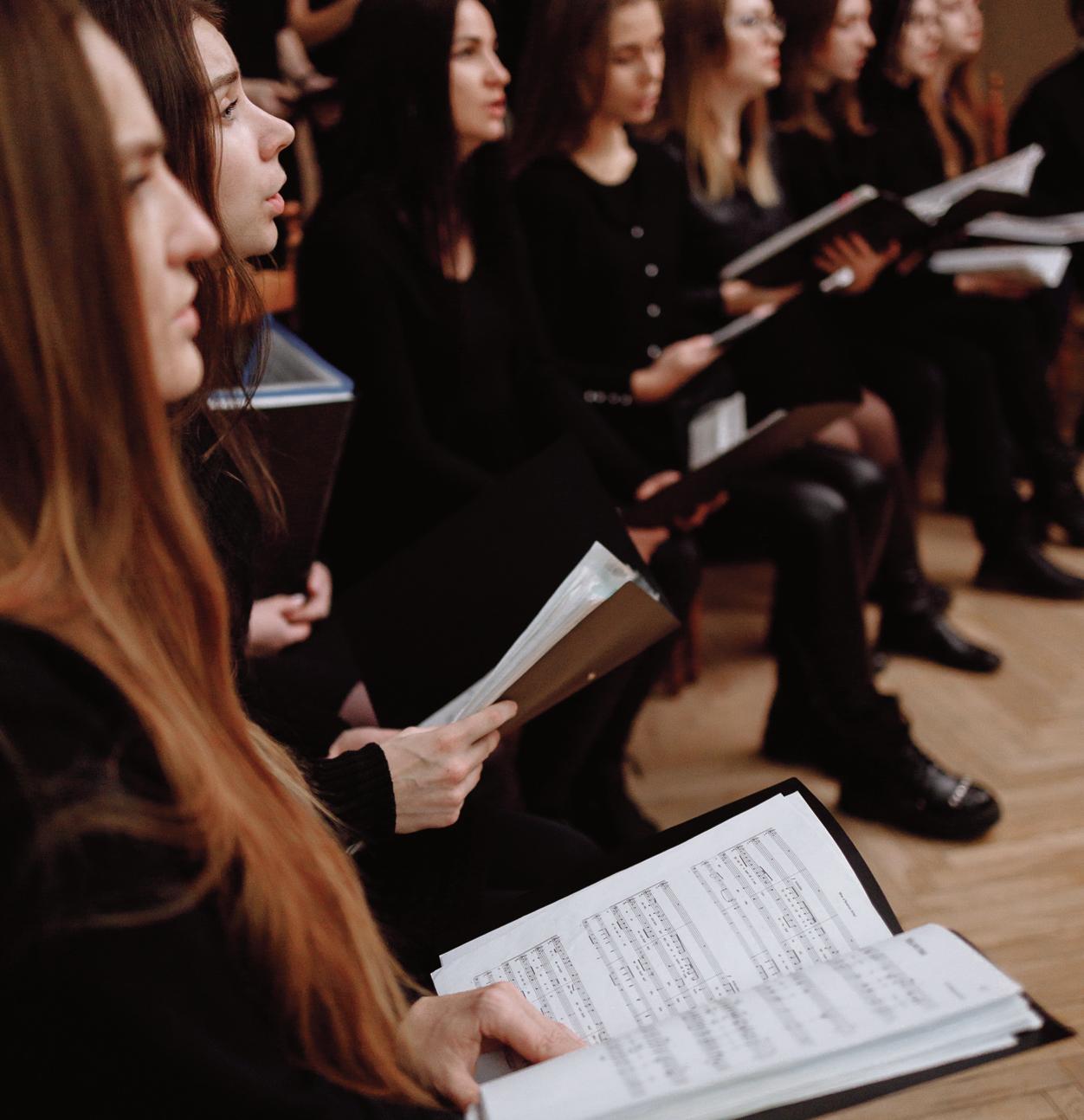
 by Dr. William Powell
by Dr. William Powell
Their symphonies of word and deed Breathe hope, sing hope I sing that my voice may be heard
In the language of souls
And wherever voices are rising
My voice will sing!
Gwen McLeod Hall creates a well-voiced and well-harmonized melody that is set to her uplifting poem. Its difficulty level is rated as medium. Marked “cantabile e rubato,” it is important that the conductor allows the phrases to “breathe” where indicated in the score rather than ignore the breath marks and default to a strict tempo throughout. Although scored for SSAA, there are three staves for voices and a grand staff for piano (rehearsal only). Divisi occurs in each staff at times, but primarily in the alto staff and secondarily in the Soprano 1 staff. There are also a few measures where voices are divided into five parts which helps to expand the lush harmonies.
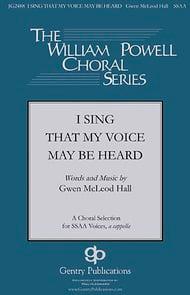
Weep, O mine eyes (TTBB voices, a cappella) by John Bennett (c. 1575-c.1614)
arr. for TTBB voices by William C. Powell
Hal Leonard Corporation, copyright 2021
HL 08596753
I Sing That My Voice May be Heard (SSAA voices, a cappella)
Words and music by Gwen McLeod Hall
Gentry Publications, copyright 2016
Duration: Approximately 2:35
JG2488 / $2.75
$1.70
Duration: Approximately 2:15
I sing that my voice may be heard
In the language of souls
Whose passion and courage
Rise from the earth
Voice upon voice
Heart upon voice
Their symphonies of word and deed
Drown the cacophony of injustice
Weep, O mine eyes and cease not, Alas, these your spring tides methinks increase not. O when begin you to swell so high that I may drown me in you?
There are few Renaissance songs that grip the heart in the same manner as John Bennett’s setting of “Weep, O mine eyes.” Originally composed for mixed voices, I chose to set it for TTBB voices to provide another piece of repertoire for developing TTBB choirs, while also making a connection with music from the English Renaissance.
Bennett’s composition provides many developmental lessons for singers. Those lessons include sustained phrasing, maintaining blend and balance, tuning, rhythmic energy in the context of a moderately slow song, discovering opportunities to build intensity in cadences, etc. The rhythms and notation are simple, but the primary challenge is in the rhythmic independence of each voice part.
Gloria in Excelsis Deo (two-part chorus and piano)
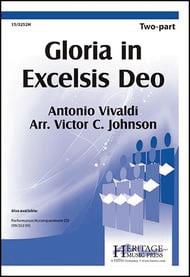 by Antonio Vivaldi (1678-1741)
by Antonio Vivaldi (1678-1741)
Arranged by Victor C. Johnson
Heritage Music Press: 15/3252H-2
$2.75
Duration: Approximately 2:45
Music is in all growing things; And underneath the silky sings
Of smallest insects there is stirred
A pulse of air that must be heard. Earth’s silence lives, and throbs, and sings. If poet from the vibrant strings
Of his poor heart a measure flings, Laugh not, that he no trumpet blows: It may be that Heaven hears and knows, His language of low listenings.
Victor Johnson does not disappoint with his two-part setting of the first movement from Vivaldi’s Gloria. In the same key as the original SATB composition, Johnson skillfully maintains the full integrity of the movement by also retaining the prominent harmonies and cadences realized in the voices. The difficulty level is classified as medium-easy, making it very accessible to most treble choirs. I believe this setting would work well as an introductory song for first-time singers of Latin text, especially since the accompaniment drives the melody forward, and the amount of text is limited to four words (nine syllables total). The piano accompaniment works best if the player is proficient in technique, and plays with energy and agility.
Music of Life (SAB, piano)

(also available for SSA, piano)
by B. E. BoykinPoem by George Parsons Lathrop (1851-1898)
Oxford University Press
OU 9780193561700
$3.25
Duration: Approximately 3:00
Brittany E. Boykin is a young African American female composer whose works are being sung around the globe. “Music of Life” is arguably one of her most recognizable and accessible choral octavos. Originally composed and premiered at the 2017 Women Composers Festival of Hartford, the work is also available for SSA voices. Written with a lilting feel, each voice part remains in the middle range throughout most of the song. The piano accompaniment has a harp-like ostinato rhythm which provides movement and flow. It requires a player who has good control and who can maintain steadiness of tempo.
Because of the uncommon wordings in the poetry, it might be helpful to include the poem in the printed program, or at least have someone recite the text to the audience. Otherwise, it will be a challenge to clearly enunciate the text for the listener, especially if the song is taken too fast.
Choral Reviews
William Powell Director of Choral Activities Auburn University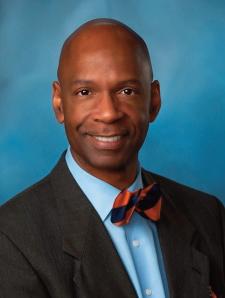 Gloria in Excelsis Deo
Gloria in Excelsis Deo
As we return to a new academic year, I hope you all have found exciting pieces to fill out your concert programs. Here are three pieces I am am eager to review below, and hope you will find them as appealing as I have.
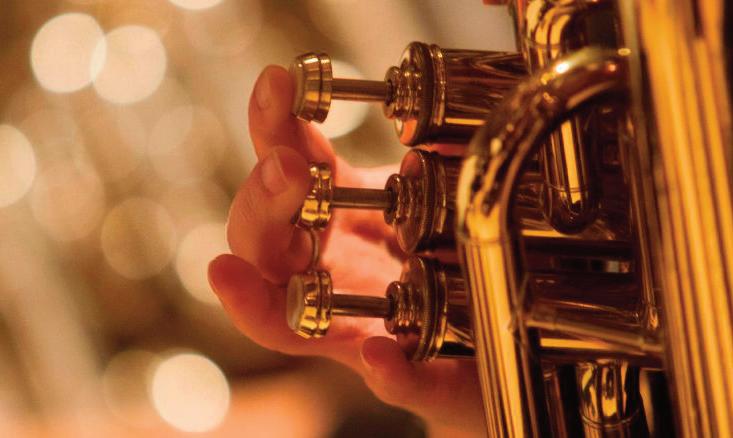 by Dr. Jeremy Stovall
by Dr. Jeremy Stovall
Legends of the Galaxy was written for the Florida Bandmasters Association Middle School Honor Band. This three minute fanfare consists of three sections. A driving opening starts the piece, and utilizes syncopation, some use of accidentals, and fluctuating meters. This section also utilizes a moving bass line with a steady hihat pulse that creates a propulsive drive. Next, a calm middle section contains beautifully lyrical melodies. Finally, a high-powered ending section contains call and answer passages and a climactic ending.
Instrumental ranges are all within the normal guidelines for a grade 3 composition. The percussion parts can utilize anywhere from 8-10 players. Doubled parts throughout create stability and comfort for the ensemble. Legends of the Galaxy is an exciting and energetic work that would be a perfect concert opener.
A recording and score of Legends of the Galaxy - A Cosmic Fanfare can be found at the following link: www.chandlerwilsonmusic.com/symphonicworks/legends-of-the-galaxy.
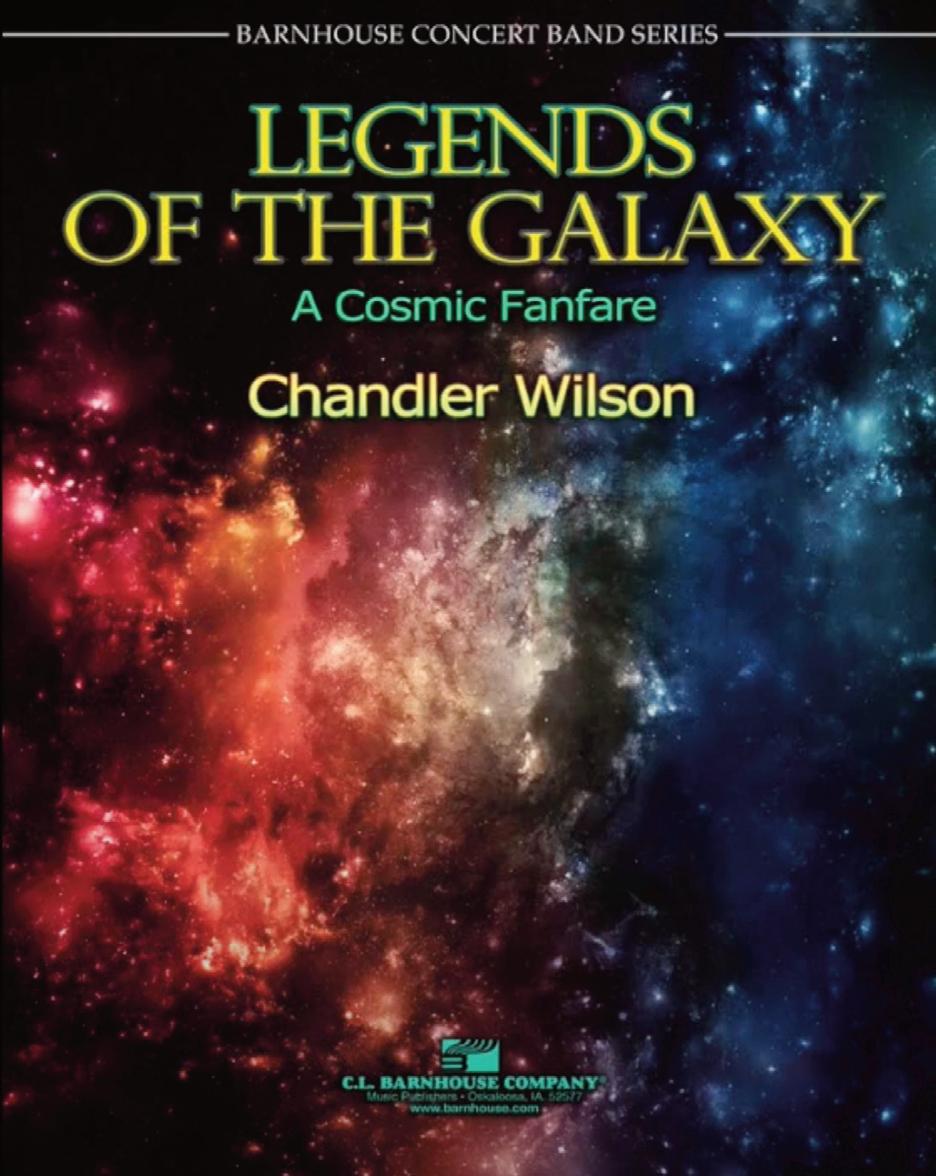
Winter Milky Way (2017) is a grade 3 work by Yukiko Nishimura. Nishimura is a Los Angeles-based composer and pianist who was born in Japan, and was a former student of Alfred Reed at the University of Miami. From the composer: “The image of this music is the color of white. The music brings the smell of winter season: you can imagine the snow or chilly air, or maybe even clear skies and ice. One could also feel the joy of the holiday season.”
Legends of the Galaxy - A Cosmic Fanfare (2016) is a grade 3 piece by Chandler Wilson (www.chandlerwilsonmusic.com). Dr. Wilson is the Assistant Director of Athletic Bands and Assistant Professor of Music Education at Florida State University.
Winter Milky Way is composed in three sections with a key signature of Bb Major throughout. After a brief introduction, a beautifully lyrical theme is stated by a woodwind choir. The development section contains some use of accidentals. A faster second section features more independent parts, and some woodwind 16th note runs. The piece ends with a recap of the first theme and a coda containing material from the second section.
Instrumental ranges are very comfortable with not many technical challenges. Rhythms are fairly basic with some use of syncopation. Most parts are doubled, creating a sense of security, especially with developing players. Percussion parts are minimal and can be played with as few as 4 players. Winter Milky Way would be a perfect addition to a spring concert program.

A recording and score of Winter Milky Way can be found at the following link: www.youtube.com/watch?v=UunlzSjWZ2Q.
Fanfare-HAYABUSA (2011) is a grade 4 composition by Japanese composer Satoshi Yagisawa. Hayabusa was a robotic spacecraft developed by the Japan Aerospace Exploration Agency (JAXA), and was the first spacecraft created to deliberately land on an asteroid and take off again. It was launched in 2003, landed in 2005, and after successfully collecting samples from the asteroid, returned to Earth in June 2010. Yagisawa was commissioned to write this piece for the band of NEC Tamagawa to commemorate the success of the Hayabusa mission.
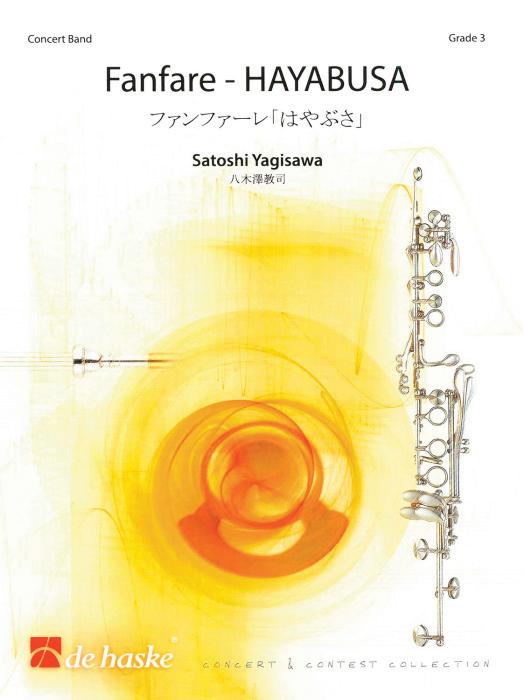
Fanfare-HAYABUSA begins with a maestoso chorale that is the basis for the entire work. After this opening statement, the tempo picks up, and the piece becomes more march-like. Syncopated rhythms, woodwind flourishes, and percussion hits characterize this faster section. The opening chorale makes a triumphant return in the next section led by the winds, with rhythmic percussion underneath. The work concludes with a glorious brass fanfare that leads to a riveting finish.
Trumpet ranges test the limits of a grade 4 composition, and the Euphonium doubles many of the woodwind flourishes. The percussion parts can be played with as few as 5 players and require confident players due to the independent nature of the parts at times. FanfareHAYABUSA would be a thrilling concert opener.
A recording and score of Fanfare-HAYABUSA can be found at the following link: www.youtube.com/watch?v=cDKzSl_UrhU.
I hope you all had a safe and restful summer. Best of luck to everyone as we begin a new school year. Please reach out if I can ever be of assistance!
Dr. Jeremy Stovall Assistant Director of Bands Associate Professor Jacksonville State University jstovall@jsu.edu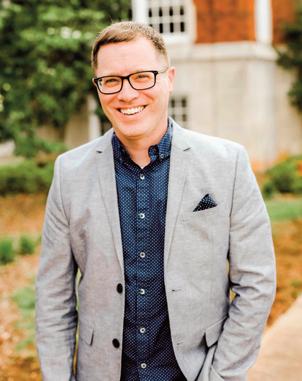
by Brenda Maier, illustrated by Sonia Sánchez © 2021 Scholastic

I’m not sure who gets more excited when they start setting up the book fair in the school library, me or the students. I found The Little Blue Bridge at our book fair a few years ago and had to get it.
This is a retelling of the classic Norwegian folktale, “The Three Billy Goats Gruff”. Ruby enlists the help of her brothers, Oscar Lee, Rodrigo, and José, to help pick blueberries for a pie. The only way to get to the berries is to cross the bridge blocked by the bully, Santiago. Each of the three brothers smooth‐talks his way across the bridge, until Ruby comes along and decides to build her own nicer bridge with painted blue planks and handrails. On their way back from berry picking, the brothers notice the new bridge and ask Santiago if they can cross. Santiago points to Ruby and says, “Ask HER.” From that

 by Jason Jackson
by Jason Jackson
day on, anyone was welcome to cross Ruby’s blue bridge.
Santiago’s speech that he repeats for each person crossing his bridge sounds very rhythmic. Ruby’s speech at the end of the story uses the same rhythm, but she changes her words. You could play this rhythm on unpitched instruments (tubanos, rhythm sticks on the floor, coffee cans, found sounds, etc.), let the class create body percussion to fit, or turn it into a melody to sing or play (maybe something menacing in a minor mode?). Ask your students to list some snacks to bring to Santiago and create a word chain to speak or play. Ask your students what other ideas they could add and turn it into a full‐blown performance!
I love so many things about the modernization of this folktale: a female protagonist, Hispanic representation in the characters, the twist at the end, fantastic full‐page illustrations, and the length makes it short enough to use in one class period, yet still posing a moral at the end of the story to discuss with kids.
Also check out The Little Red Fort by the same author with Ruby and her three brothers as the characters. It’s another retelling of a classic folktale, “The Little Red Hen”.
Visit Brenda Maier’s website for teacher resources to use with both stories. They aren’t music‐specific, but you may get an idea from some of the suggested activities: http://www.brendamaier.com/teacher‐page.html

‣ Generous Scholarships Available for Music Majors and Minors



‣ All members of the Jaguar Marching Band receive a scholarship
‣ Music and Jaguar Marching Band scholarships are stackable with other USA Academic Awards
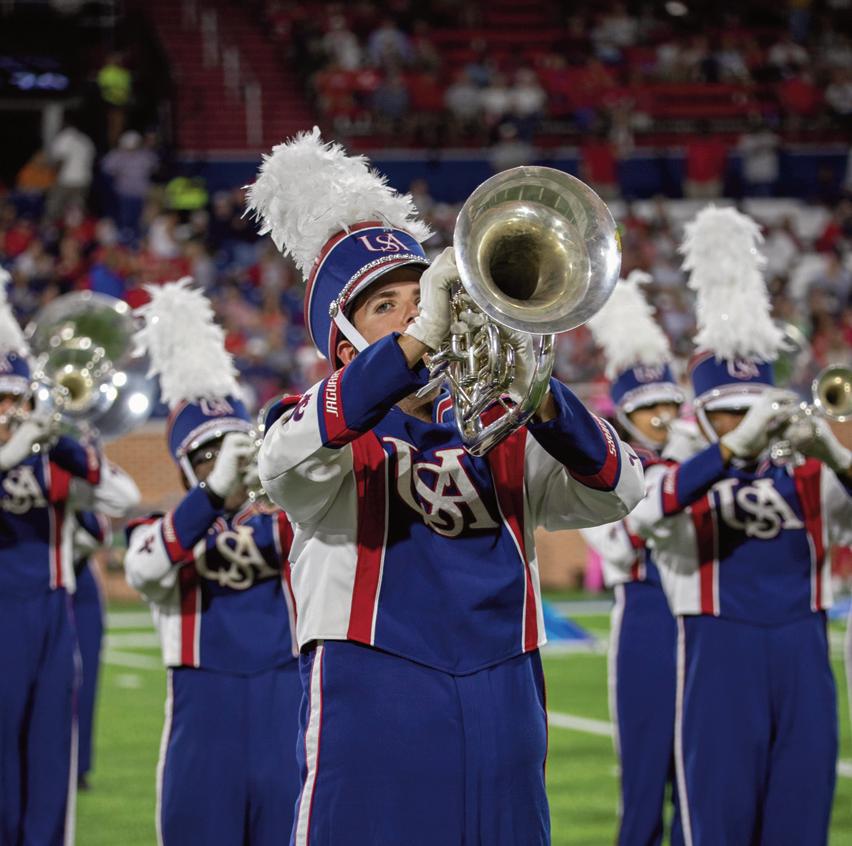
Audition Dates
January 6, 2024
February 3, 2024
March 16, 2024
April 6, 2024
October 14, 2023
South Alabama Marching Band Championships
November 11, 2023
Jaguar Marching Honor Band
December 8-10, 2023
USA Concert Honor Band
Degree Programs


BM in Music Education
BM in Performance
BM with Elective Studies in Music Business
BM with Elective Studies in Specific Outside Fields
MM in Music Education
MM in Performance

MM in Collaborative Keyboard Music Minor
To View Audition Requirements visit southalabama.edu/music or jaguarmarchingband.org
USA offers in-state tuition to all out-of-state students awarded an admission scholarship for academic merit at the time of admission

holding rhythm section auditions! I have multiple drummers and like large rhythm sections, but not everyone plays on every tune, and they all need to know their roles so it doesn’t sound like a hot mess.
Dr. Andy Nevala, Director of Jazz Studies, Jacksonville State University, Director, JSU Jazz Ensemble I, 2023 Downbeat Magazine winner for “Outstanding Performance, Undergraduate Jazz Ensemble”.
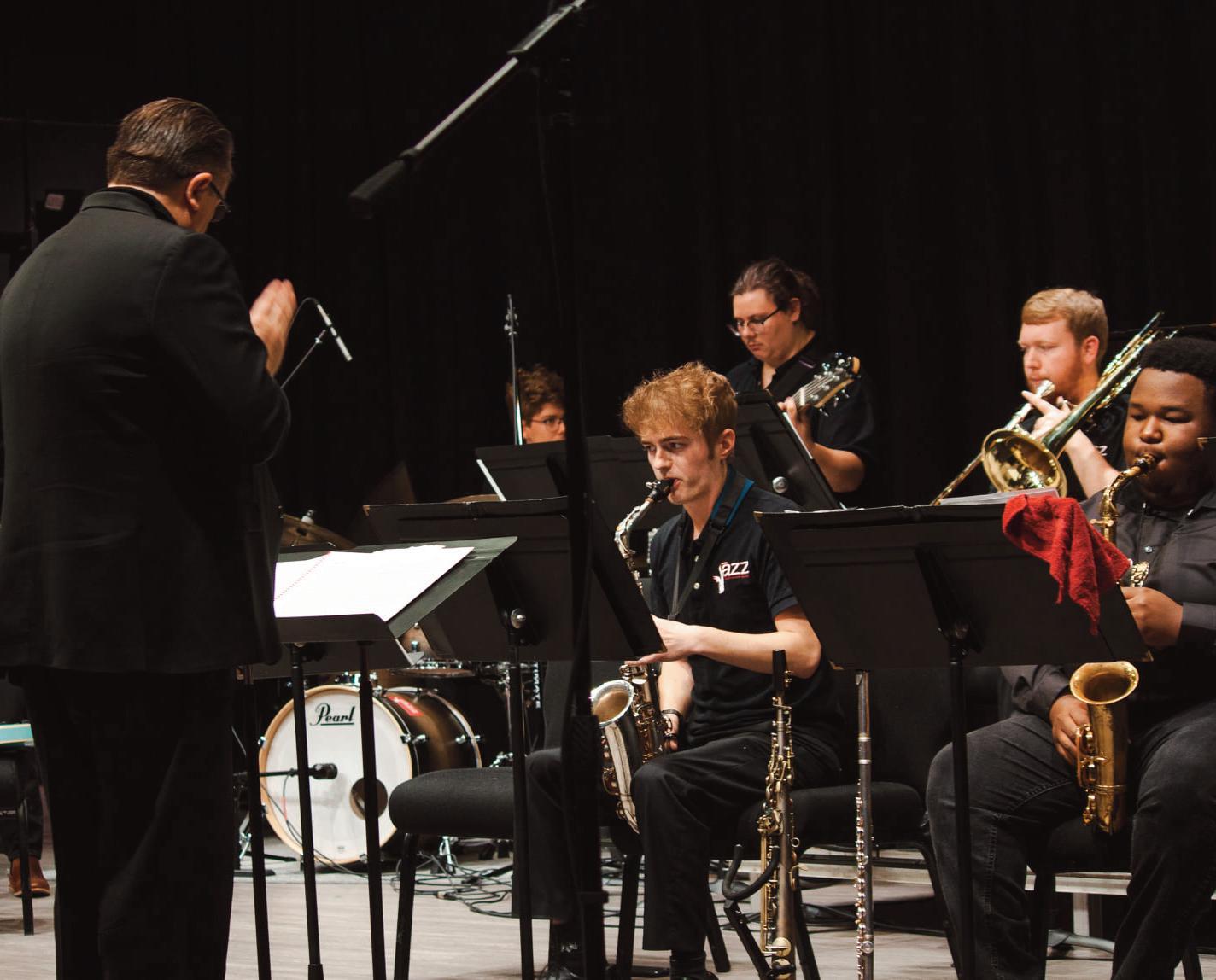
I’m often asked, “What can I do to get my Jazz Band going?”. First and foremost, you need to understand how a Jazz Ensemble works. Like a Symphony Orchestra, each player or part has a specific role and purpose toward the greater good of the Jazz Ensemble “sound” and performance. Knowing who to put in the right place, at the right time, is the key to success.
The rhythm section is the cornerstone of the band. There has never been a great band with a bad drummer, and vice versa: many mediocre bands can sound great with a really good drummer. The drummer’s role is to set the style, whether it’s a medium swing, funk, bossa, straight eights contemporary, while at the same time
“kicking” the band: setting up the figures the band is about to play so the band knows exactly where to come in. Often reading is an issue; fortunately, many of the charts come with recordings, so if that person can’t read music, they can try to have it memorized from the recording. The bass player provides the foundation of the harmony, that “Overtone Series” deep musical theory stuff that makes the chords sound full and the band sound in tune. The bass also needs to match the bass drum in whatever style you are playing, as the kick drum serves the “attack” for the acoustic bass note to cut through the band. Charts for bass players have chord symbols and written-out bass lines. Your piano player and guitar player are there to support the band and soloists by comping. One of these two needs to be able to read music, as some of the charts that are geared towards beginning bands have detailed piano/guitar parts written out along with chord symbols. Be careful about letting these two both play all the time - they will clutter and muddy the sound if two harmonic comping instruments are playing at the same time. Think about these things when you are
The lead trumpet player has a critical role in how your band will sound. The person on that part, given the nature of the sound of the trumpet in a high register, will be heard, and the lead trumpet player determines style, note lengths, articulations, volume, tempo, dynamics, and feel. The other musicians in the ensemble all listen to the lead trumpet part, and that is why the lead trumpet should be in the back row, in the middle of the band. Your lead trombone player should be directly in front of the lead trumpet, as well as the lead alto player where they can hear the lead trumpet and match the style and articulations. Of course, this is all predetermined by your score preparation with the recordings, and you tell the lead trumpet how to play what you want played before the first rehearsal. Once you dive into the score preparation it’s easy to hear how the great bands all played the same articulations, etc…, and that’s the reason they are the great bands. The 2nd trumpet part is sometimes a split lead part: this player can play a little bit of lead to help the lead player out, and the parts that are written for this player are in the higher range as well. The soloist in the trumpets needs to be on the 3rd or 4th part: soloing is a different skill set, and often this person is practicing soloing rather than working on range studies.
Trombones and Saxes that aren’t playing lead are all equally important. The bari and bass bone hold down the low end of the band and should be on the opposite side of the band from the rhythm section. The 2nd Alto, 2nd Tenor, 2nd Bone, and 3rd Bone are all playing harmony notes in the chords or playing a part that matches what the
2nd and 3rd trumpet are playing, so ideally those players would sit in a straight line like the lead players, so they can hear the part and match the person behind them.
The soloists are usually the 1st tenor, 2nd or 3rd bone, and 4th trumpet. These folks need to be closest to the rhythm section because when it’s solo time, the rhythm section needs to be able to hear them as if they are playing in a combo setting, so everyone can react to each other and play together. If there is a feature for an instrument, that person should come out in front of the rhythm section side of the band for the same reason.
Now that you know the roles of each player, put the right players in the spots that will serve the overall function of the band in the best way. If you can hold auditions, have different options for them. Provide a lead trumpet part or a 4th trumpet part for them to choose from. Same with trombones. The lower parts are a great way for newcomers to jazz to contribute to the ensemble and are just as important as any other part. Put the right person in the right spot for the right reason. I’ve also included a diagram of my jazz ensemble concert setup. Now you are ready to find some music to play!! If you have any questions, don’t hesitate to reach out at anevala@jsu.edu.

Christopher Kozak, Director of Jazz Studies and Instructor of Double and Electric Jazz Bass, University of Alabama
A question that comes up often from High School and Middle School Band directors is, “Where do you recommend finding some easy beginner charts for our Jazz Ensemble or Jazz Band?” It isn’t enough to point someone to a website and just randomly pick charts from a grade 1 level. Doing that can and many times does, lead to picking charts that lack some of the fundamental groundwork that can help build better musicians in your sections leading to a bettersounding band. It can also be difficult to ascertain your band’s grade level, especially before a semester or when you haven’t auditioned your sections yet for placement. This is a great opportunity to have some easy charts on hand to help determine their abilities.
An important place to start is determining how advanced your students are. Can the lead trumpet players play a G above the staff? Can your Piano player read chord charts and improvise an accompaniment? How many of the students are strong improvisers? Does your rhythm section have solid time and can play different styles? How well do your sections play in tune? Do you have a full band or is
there a unique blend of instruments? How many of your students are familiar with Jazz? The list goes on but thankfully most grade 1 and 2 charts will have indicators as to how complex the arrangements are as in what ranges are expected, the difficulty of the rhythms, and stylistic concerns i.e., can your 8th grade Jazz Band play an uptempo Funk chart in 7/8? (BTW, if you can do that, I’d love to hear your band!) A lot of the charts will have at least 3 woodwinds, and 5 or 6 brass that can be “shared” or doubled with similarly tuned instruments. It’s ok to mix it up a bit to fill out the sound if they work within the arrangement. You may consider using “convertible” charts for your smaller groups or combos to get them familiar with playing in harmony or just reading charts. While they aren’t always ideal, having the options of Eb, Bb, and Concert/Bass clef parts available to everyone is a surefire way to include as many of your talented students as possible. Once you have those questions answered, you’ll at least have a good idea of what charts to pick based on the criteria you are looking for.
Another thing to consider is genre. There are plenty of easy-grade charts that take a popular tune such as the Rolling Stone’s “Satisfaction” or Bon Jovi’s “Livin’ on a Prayer.” Those can be fun places to start however, I might recommend selecting one of the more well-known arrangements that have been adjusted for a particular grade level. A few suggestions would be Roy Phillipe’s arrangement of Count Basie and Neil Hefti’s “Little Darlin’,” Mike Sweeney’s arrangement of “Wood Chopper’s Ball,” or Rick Stitzel’s “Freddie Freeloader.” Those are all contrasting styles within the genre, somewhat varied tempi, and accessible for a starting band. Most importantly they are from the traditional jazz repertoire that they will most likely
work from as they progress to more challenging material within the idiom in following years.
Now I’m not saying to do away with anything other than swing. Jazz is and has always pulled from many other styles. Making a connection with your students and audience by programming something familiar can help draw them in. The previously mentioned popular charts would be a fine addition to a program that your audience might connect with. These style charts can help foster the foundation for getting a band to collectively understand rhythm, dynamics, and articulation; however, don’t program only that style of chart for a single concert, or as I say, “try not to use all of your sprinkles on one sundae.”
There are currently several resources I like to use which have graded offerings that many of you might (or might not) already be aware of. EJazzlines.com, Hal Leonard, UNC Jazz Press, and Jamey Aebersold are great places to start. Check out their Grade 1 (easy) and Grade 2 (medium-easy) charts for your bands. Many of these publishers or distributors not only offer hard copies but allow downloadable PDF versions of a variety of charts for your groups. While staying within the copyright boundaries, you can secure your library and have access to parts when the inevitable, “my dog ate my Jazz Band folder” comes about. It makes for much easier storage and library management not to mention securing your materials for years to come.
I hope you find some of this information helpful. Remember, you can contact me at ckozak@ua.edu or any of my colleagues with questions or recommendations. Don’t forget: listen to and play Jazz every day. It’s good for you!
There is perhaps no greater impact on the success of an ensemble than the repertoire that its director chooses. Selecting a range of quality music that exposes our students to a range of different styles, genres, and difficulty levels is certainly among the most important choices a director makes. I would counsel that any jazz band director consider the following when choosing your charts:
DIFFICULTY LEVEL: 1
Ascertain the grade level the majority of your musicians are at, and choose charts that are a good fit in this regard. A typical set consists of about 57 charts, so it is a good idea to have a couple of tunes that are relatively straightforward and easy to read down. Pick at least one tune that stretches your ensemble to foster growth and increased maturity.
MORE THAN YOU NEED: 2
In rehearsals early in the season, it is a good idea to have more charts than you need in the folder. Not only will some be a better fit than others in terms of difficulty level, but it is also important to ascertain which charts your ensemble likes, and those they do not. A director will ultimately make the call on which charts will be selected to work on, but it cannot be overstated to pick charts that are not morale killers. Many quality charts are worth the time of your band; you will have more buy-in and a happier group if the members like the charts!
VARIETY: At the middle and 3 high school level, it is very important to have a mixture of swing, Latin, rock, and
contemporary charts. Exposing young musicians to the unique skill sets of these different genres is very important to their development. You can also add charts with vocalists, augmented percussion sections, ballads/features, and themes, such as the big band dance hits of the 1930s-40s.
COMMENTS: Strive to have one (or more!) constructive comment for each section of the band in each rehearsal. Students thrive on being encouraged and challenged, and your role is to mentor them on both their instrument, ensemble playing, and in a proper jazz style. If you are unsure of any particular instrument or section, bring in a professional and glean as much information from them as possible. There is also a wealth of knowledge available through publishers and the internet, with one of my favorites being Jazz Pedagogy: The Jazz Educator’s Handbook and Resource by Richard Dunscomb.
STANDARDS: Become aware 5 of the most popular composers and arrangers of this music, as well as quality publishers, such as those listed above by my colleagues. Keeping an ongoing list of charts you like and think might be a good fit for your ensemble is an excellent idea; add to it from published lists, live concerts, youtube, social media, and other trusted and recognized jazz sources. Conferences such as the Jazz Educators Network (JEN), and various festivals in your area can be very useful as well.
Dave Camwell, Director of Jazz Studies and Associate Professor of Saxophone, Troy University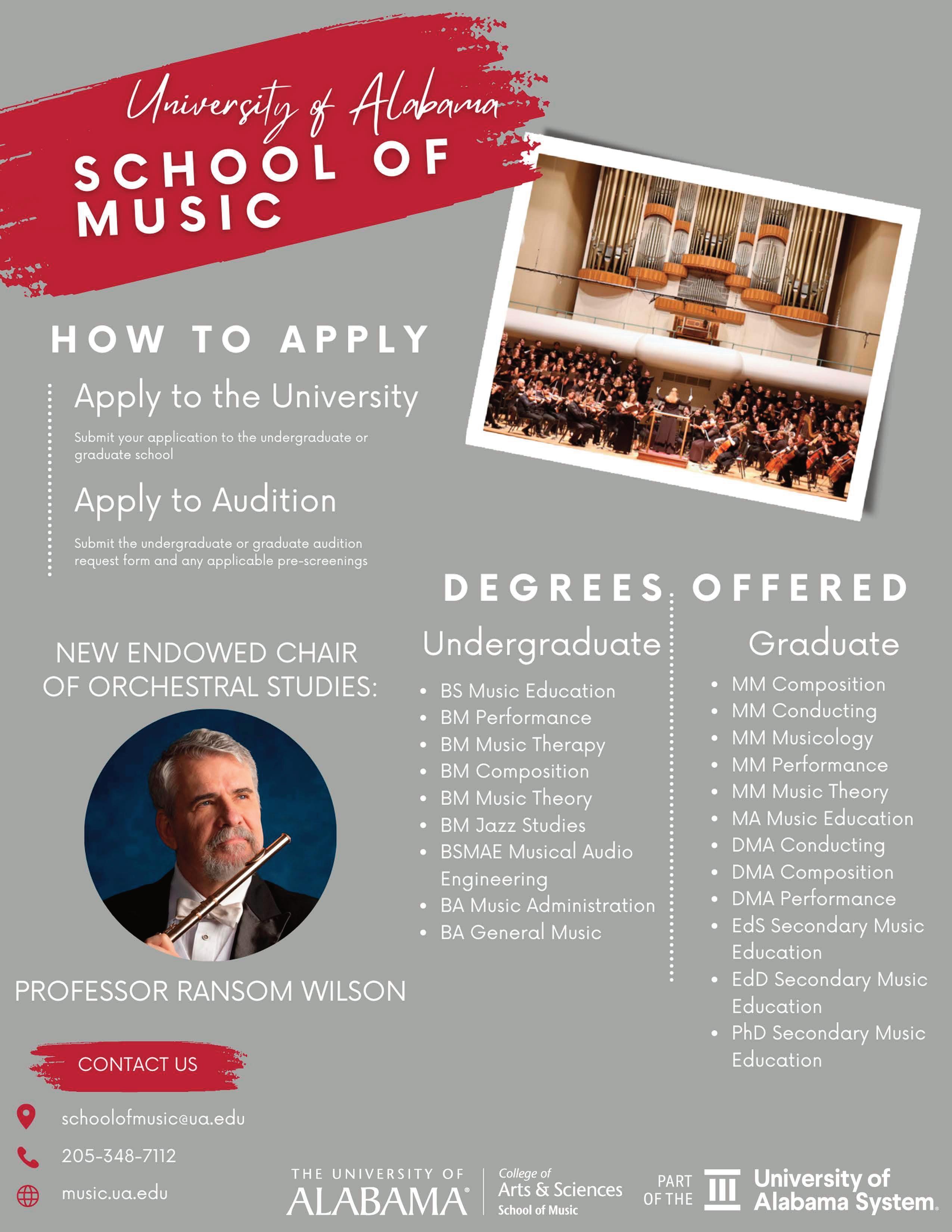
State Choral Performance Assessment
2
District VII: October 17
District VII: March 19
District I: March 20
District I: March 21
District II: April 4-5
District III: March 13-15
District IV: April 12
District V: March 6-7
District VI: April 2
District VII: March 19
Tallassee High School
Spring Hill Baptist Church, Mobile
Spring Hill Baptist Church, Mobile
University of North Alabama
First Baptist Church Decatur
University of Alabama
Hope Church Gardendale
Gadsden City High School
Grissom High School
Tallassee High School
Spring Hill Baptist Church, Mobile
January 6-7, 2024
January 6-7 2024
January 18-20, 2024
February 8-11 2024
April 5, 2024
North All-Region Orchestra
South All-Region Orchestra
AMEA Professional Development Conference
All-State Orchestra Festival
Orchestra Music Performance Assessment
Huntsville, Alabama
Greenville, Alabama
Von Braun Center, Huntsville
Tuscaloosa, Alabama
Alabaster, Alabama
American Travel Consulting
P.O. Box 750, Albertville, AL 35950
Collins Hornworks
5256 Willow Way, Birmingham, AL 35242
Group Travel Network
5401 S. Kirkman Rd. Suite 530, Orlando, FL 32819
J.W. Pepper of Atlanta
9053 Riverside Parkway, Lithia Springs, GA 30122
Marchmaster
14 Lake Point Drive, Dahlonega, GA 30533
Sight Reading Factory
1321 Upland Drive, Suite 12621, Houston, TX 77043
Southern Performances
427 Appollo Avenue, Gulf Shores, AL 36542
Super Holiday Tours
116 Gatlin Avenue, Orlando, FL 32806
The University of Alabama School of Music
810 2nd Avenue, Tuscaloosa, AL 35487
The University of North Alabama
UNA Box 5040, Florence, AL 35632
The University of South Alabama Department of Music
5751 USA Drive South, Mobile, AL 36688
Troy University John M. Long School of Music
112 Long Hall, Troy, AL 36082
Strengthen your school’s Music. Honor. And Society. Starting a Tri-M ® Music Honor Society chapter will help show the value of your music program to the sc�oo�.�����i�����so���n�����our�s�u��n�s�������o�in�� them to:
•Build an impressive record for college

•Grow as leaders in music
•Serve their community
Ready to start a chapter? Visit MusicHonors.com
FRIDAY, FEBRUARY 2, 2024
SATURDAY, FEBRUARY 3, 2024
FRIDAY, FEBRUARY 9, 2024
SATURDAY, FEBRUARY 10, 2024
The Jazz Ensemble I has achieved a Downbeat Award for Outstanding Performance. After winning the Third Section competition at the North American Brass Band Association Championships this past April in Huntsville, the JSU Brass Band has been selected to perform at the 2024 Alabama Music Educators Association Professional Development Conference. The JSU A Cappella Choir has also been selected to perform at AMEA in January and will debut at Spivey Hall in February for the Young People’s Concert Series at Clayton State University.
Bachelor of Arts in Music
∙ Music Education with Instrumental or Vocal Concentration
∙ General Music with Instrumental or Vocal Concentration
∙ Performance with Instrumental, Jazz, Piano, or Vocal Concentrations
Master of Arts in Music
∙ Vocal Music Education

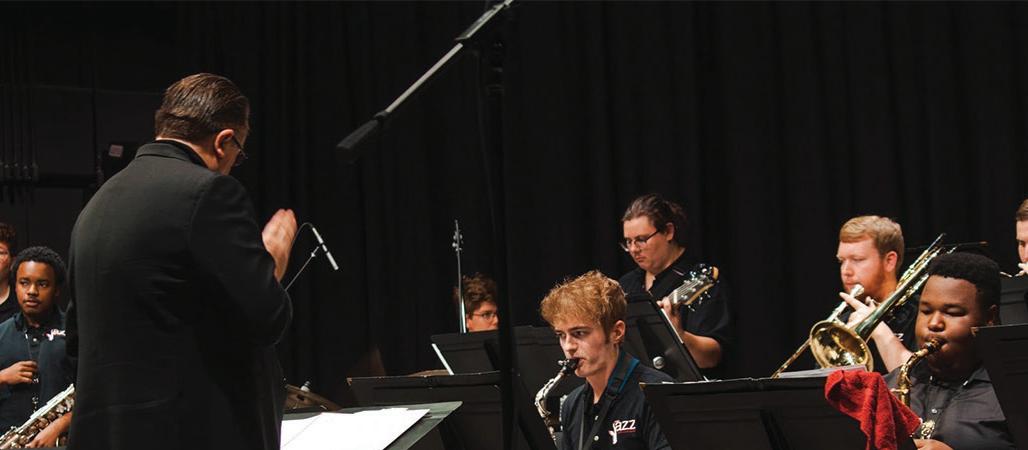
∙ Vocal General Music
∙ Instrumental Music Education


∙ Instrumental General Music
Minors
∙ Jazz Studies
∙ Music
∙ Music Technology


Sept. 28, 2023 Festival of Voices

Oct. 15, 2023 Flute Day
Nov. 4, 2023 Single Reed Symposium

Dec. 2, 2023 All-State Band Clinic

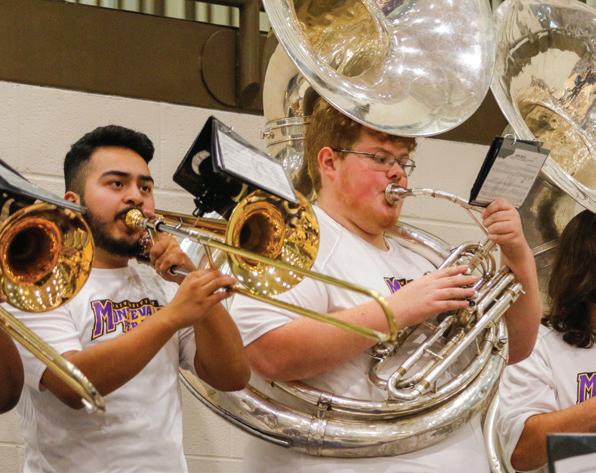
Jan. 29, 2024 Choral Festival Day
Feb. 23-24, 2024 Middle School Honor Band


March 1-3, 2024 High School Honor Band
On-campus auditions for scholarships
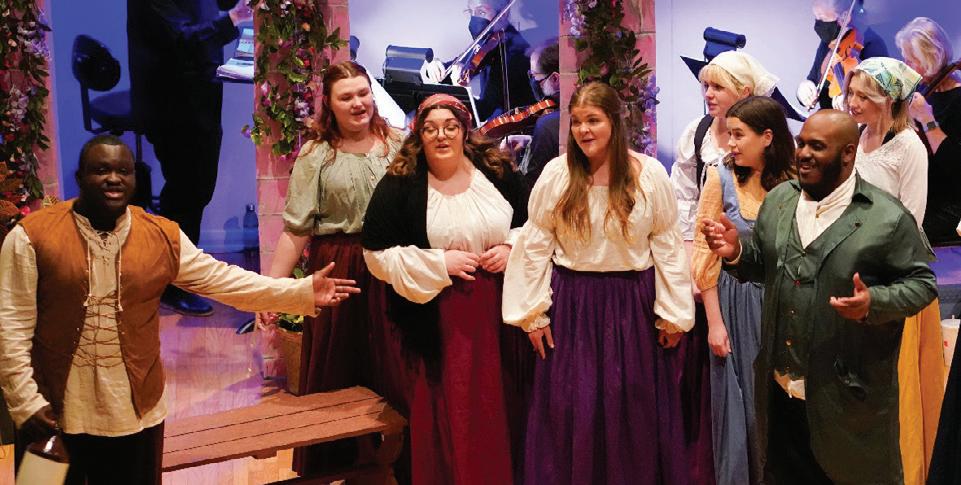
Feb. 10, 2024
March 2, 2024
Honor Band participants only
March 9, 2024
Virtual auditions available upon request. For more information, visit montevallo.edu/music/audition




























































































